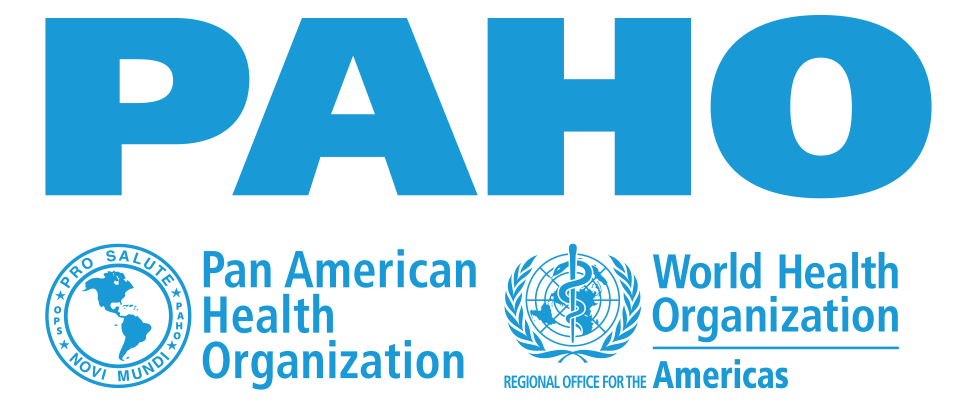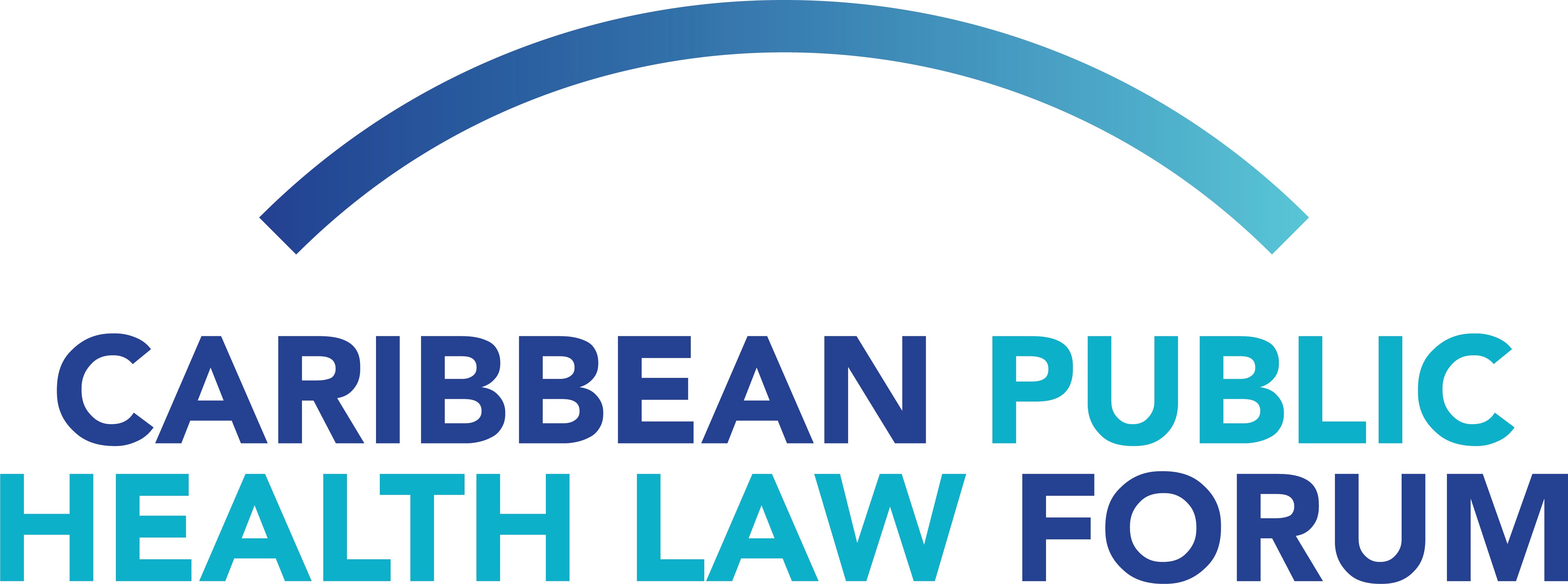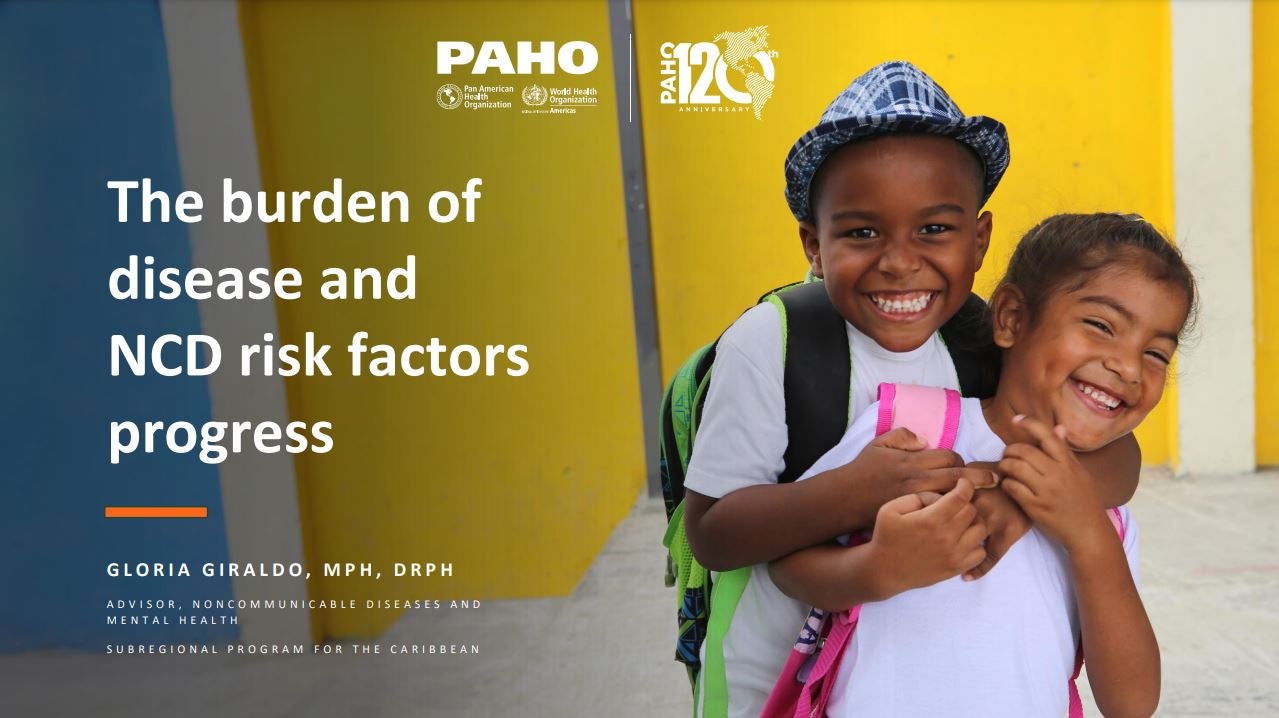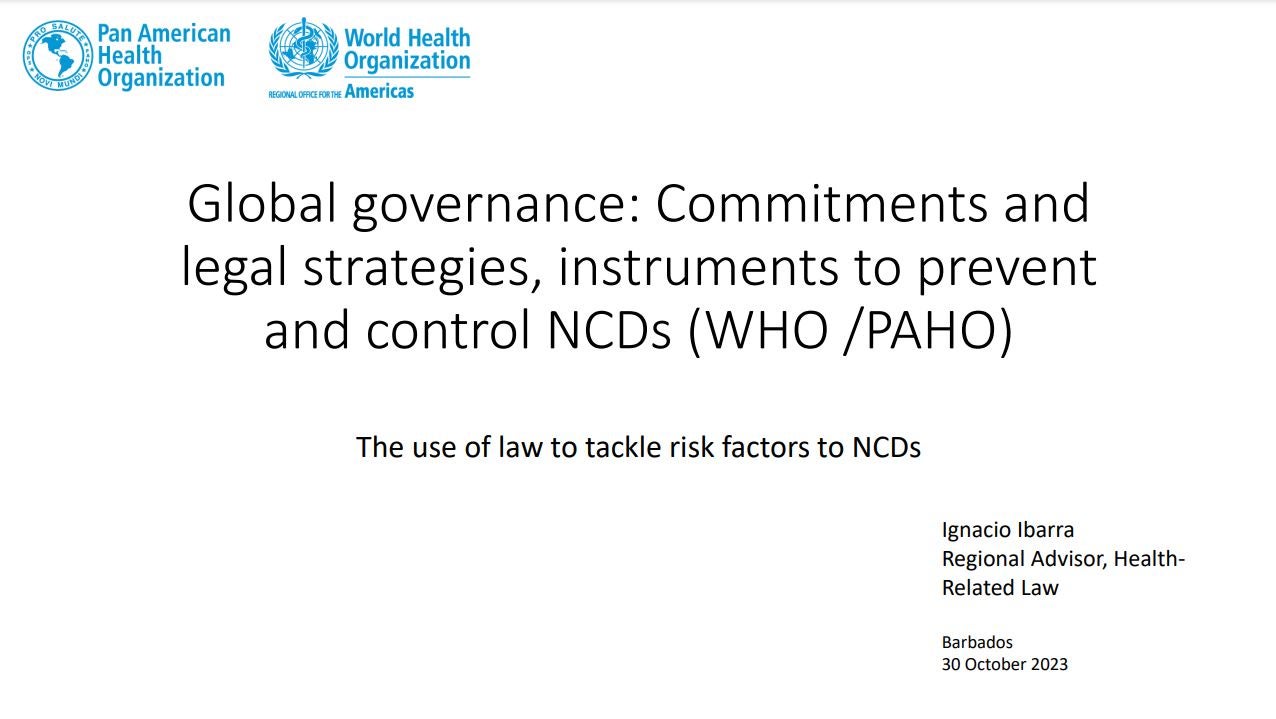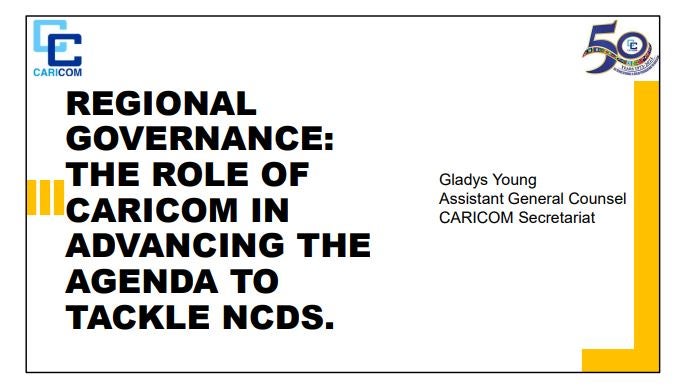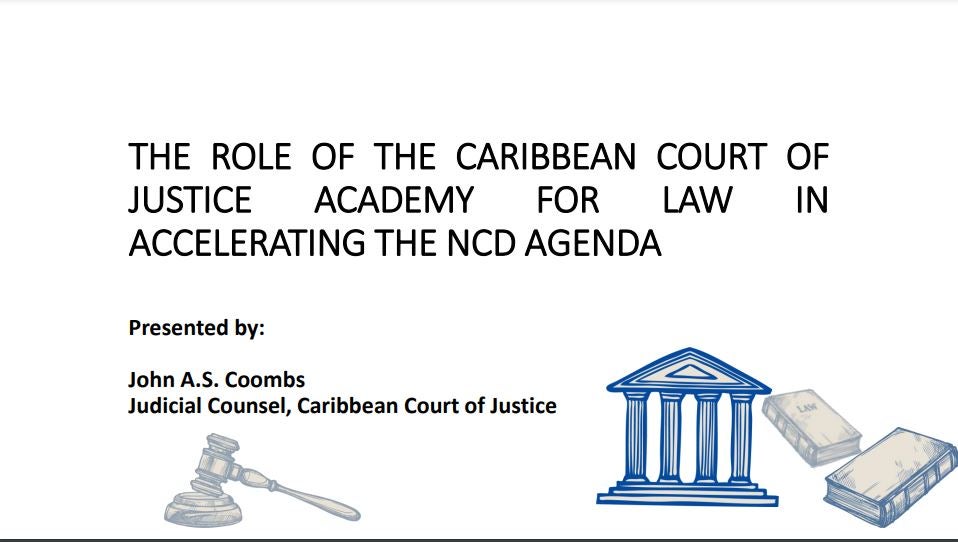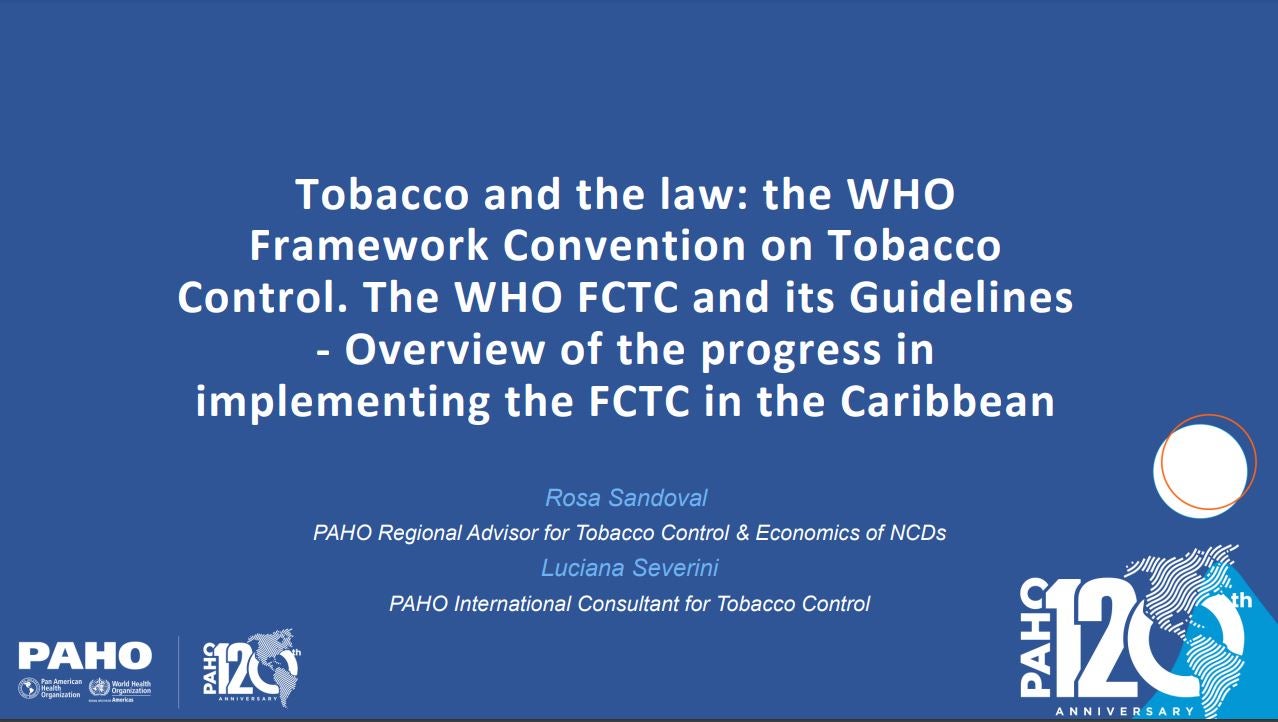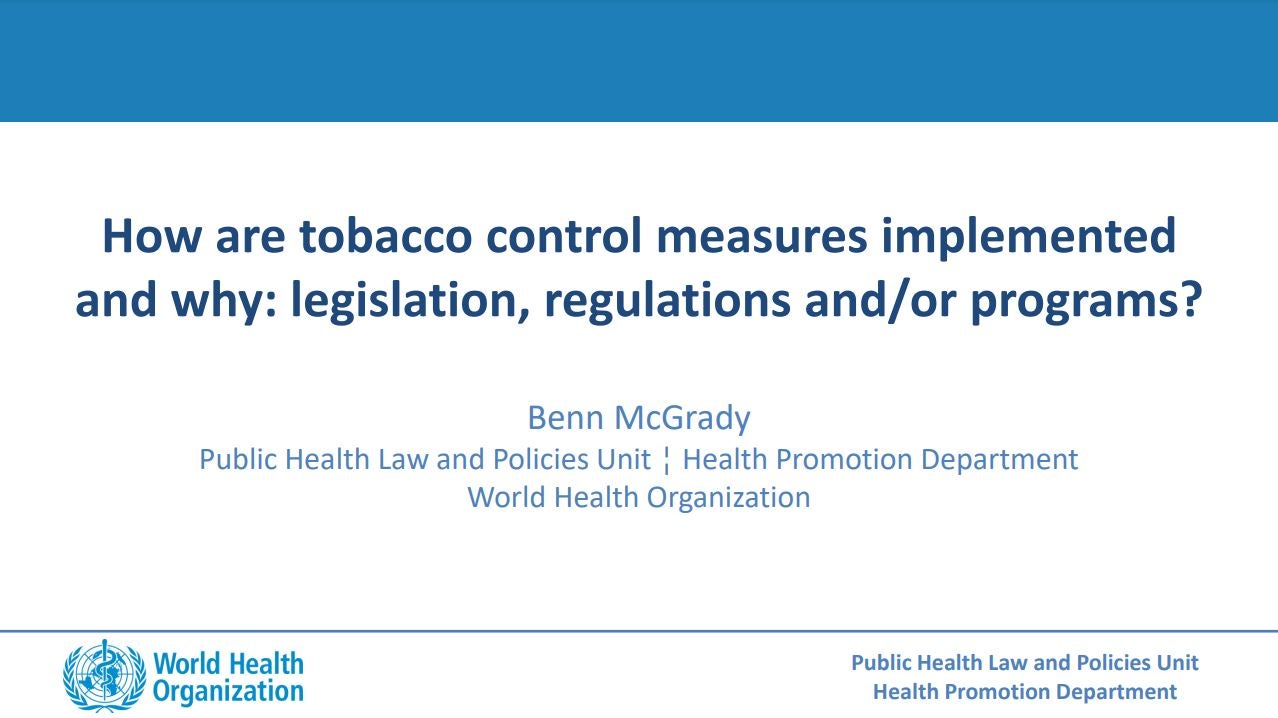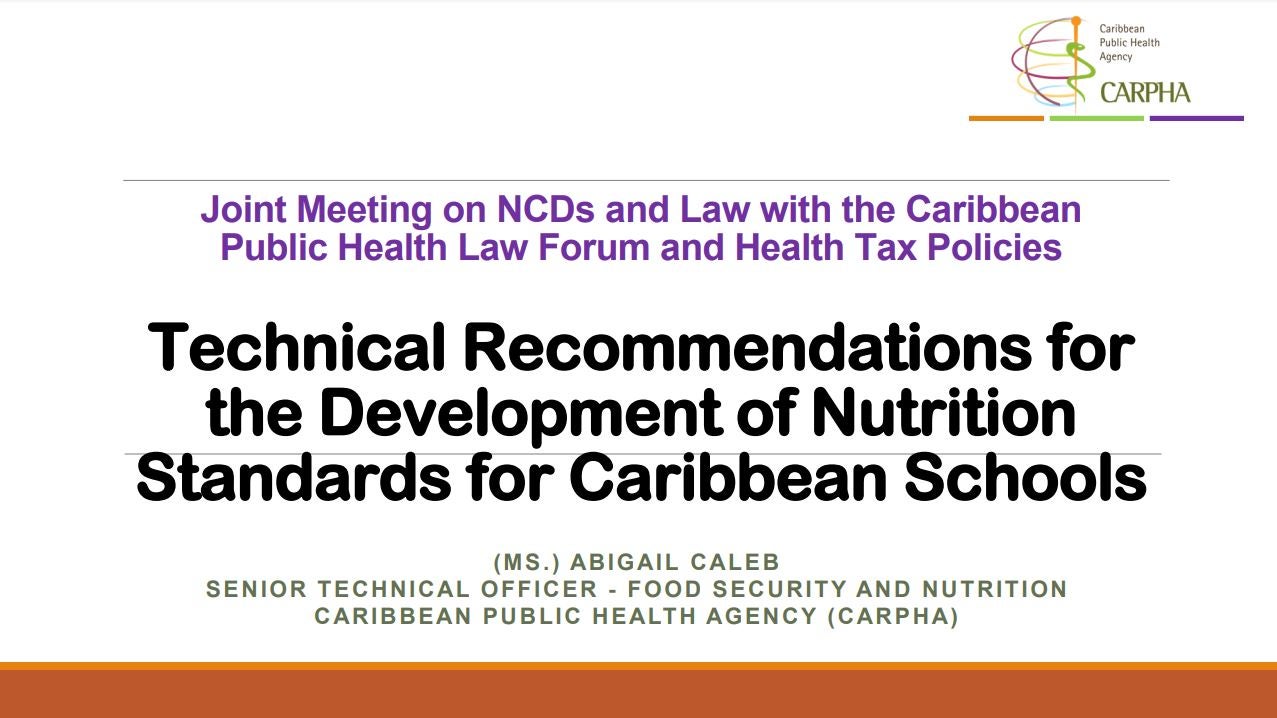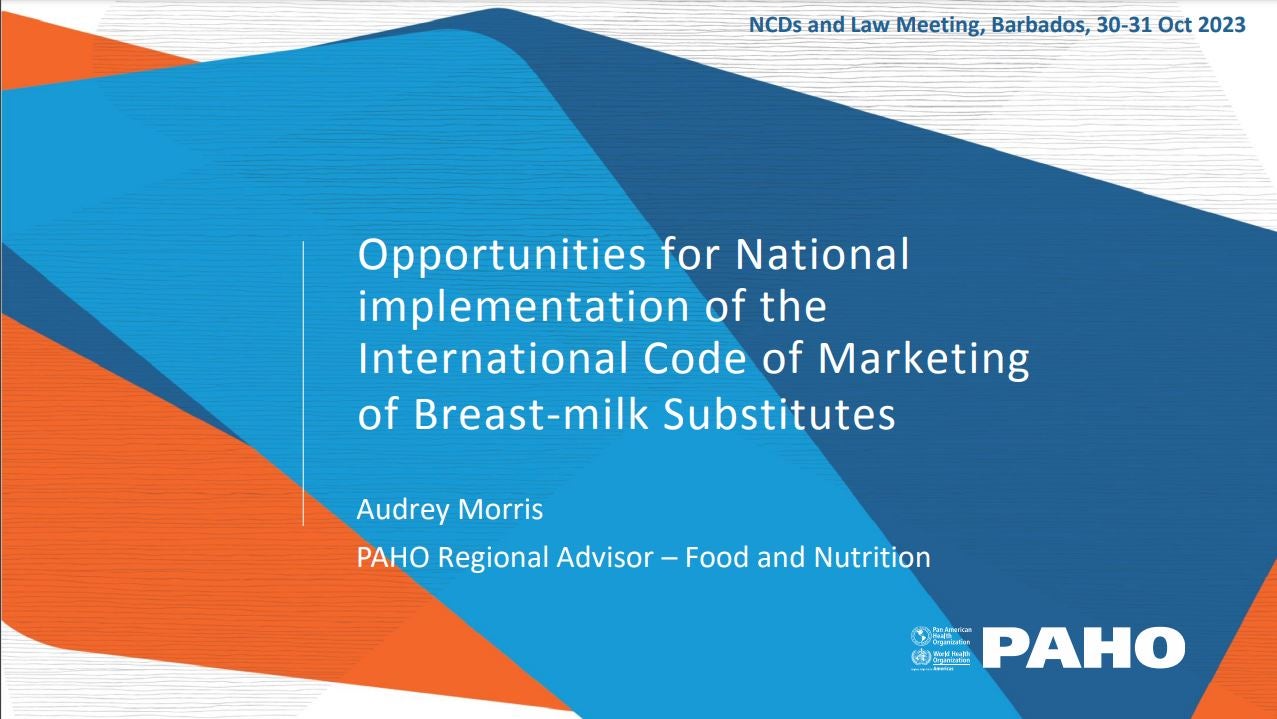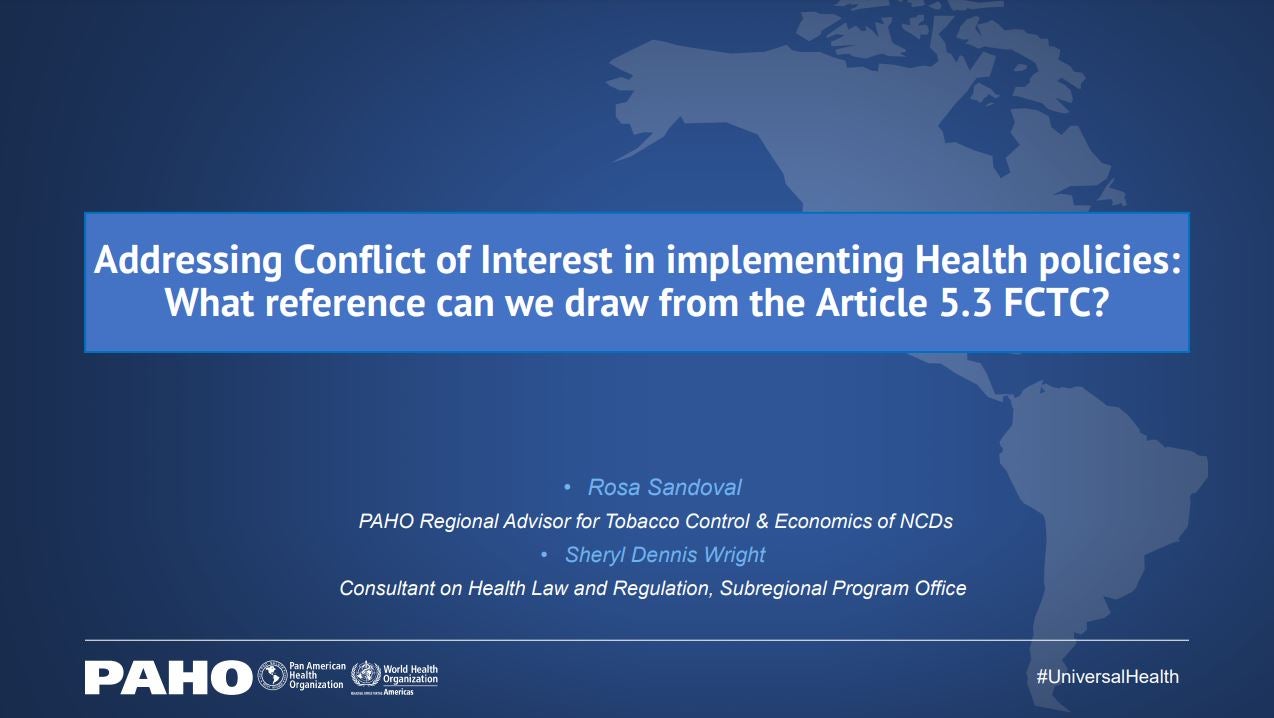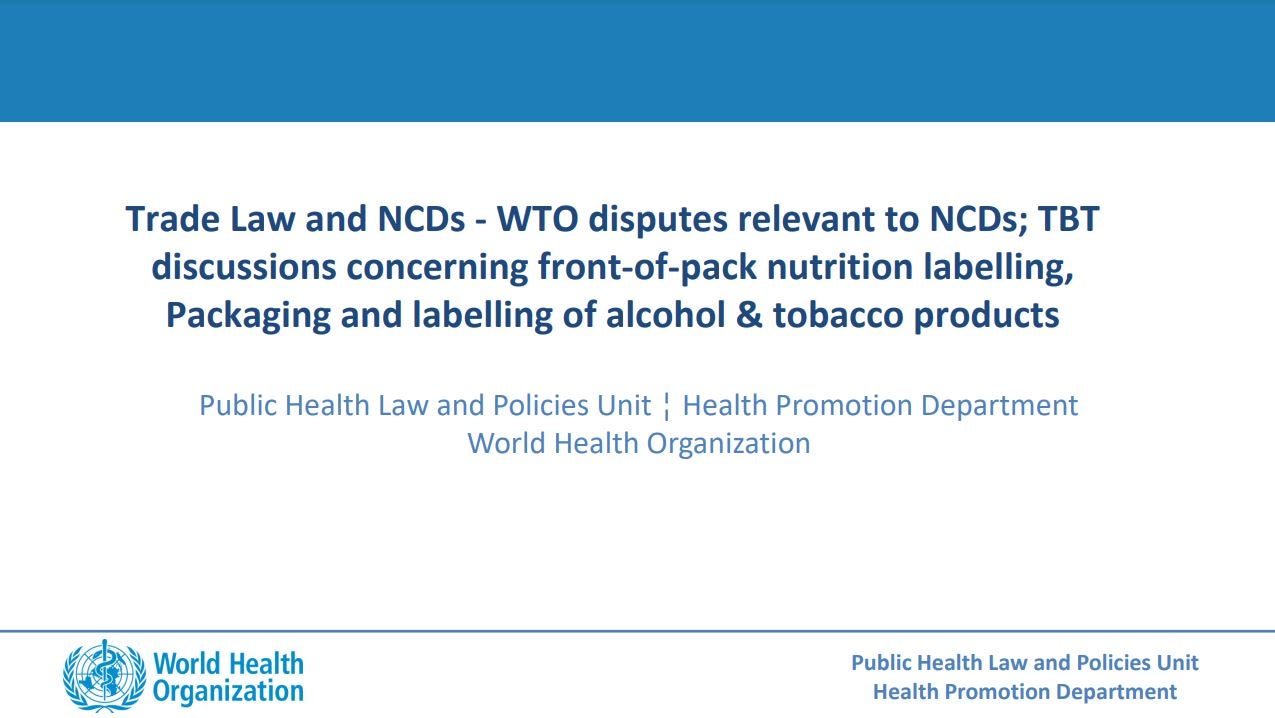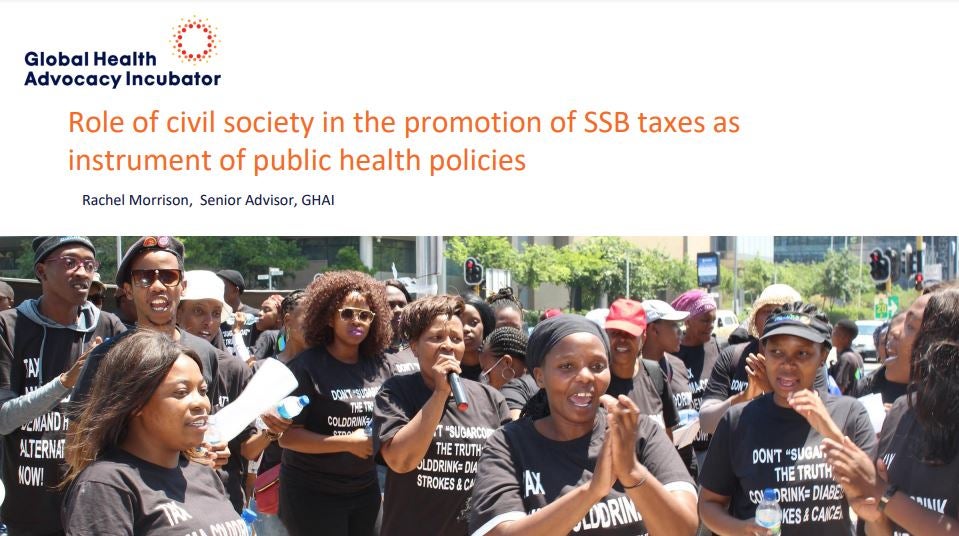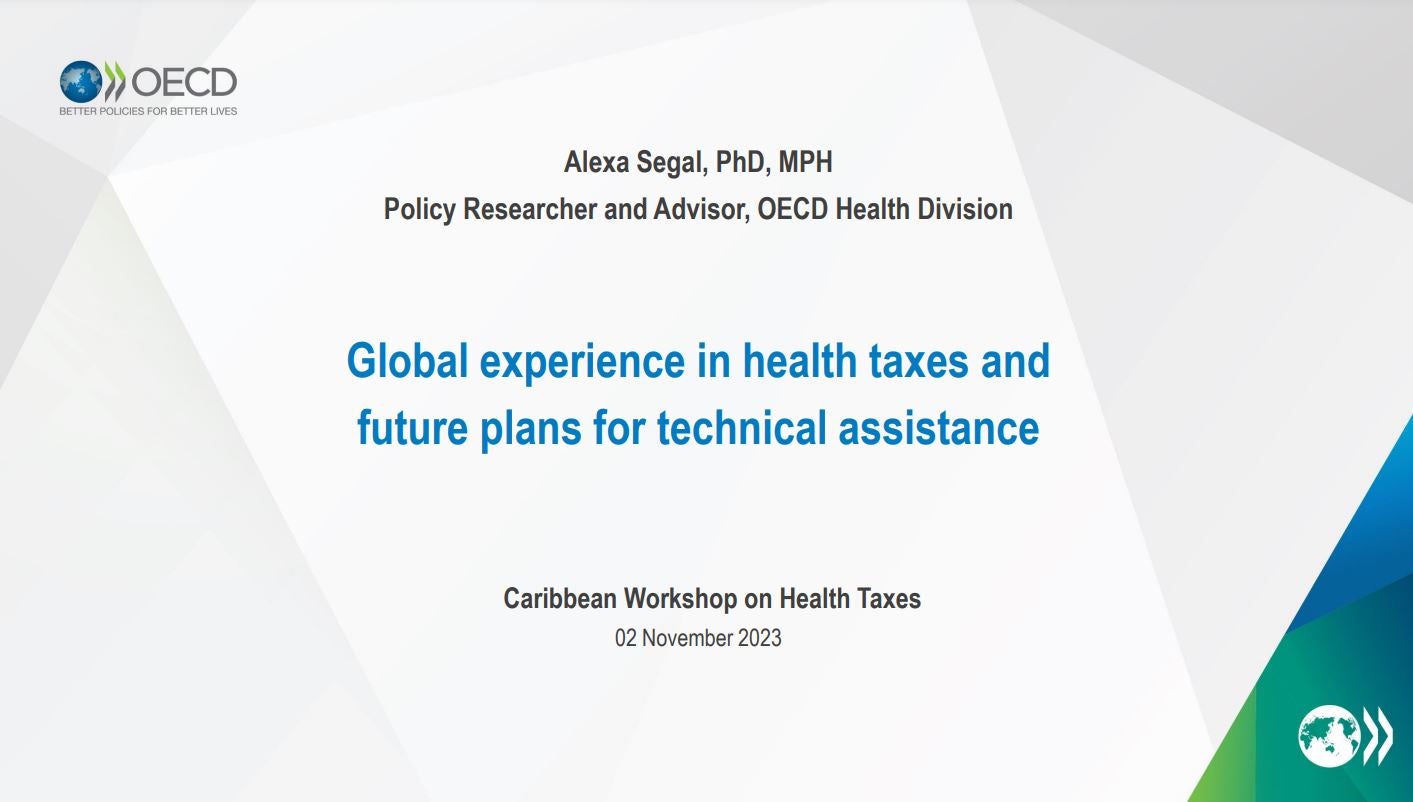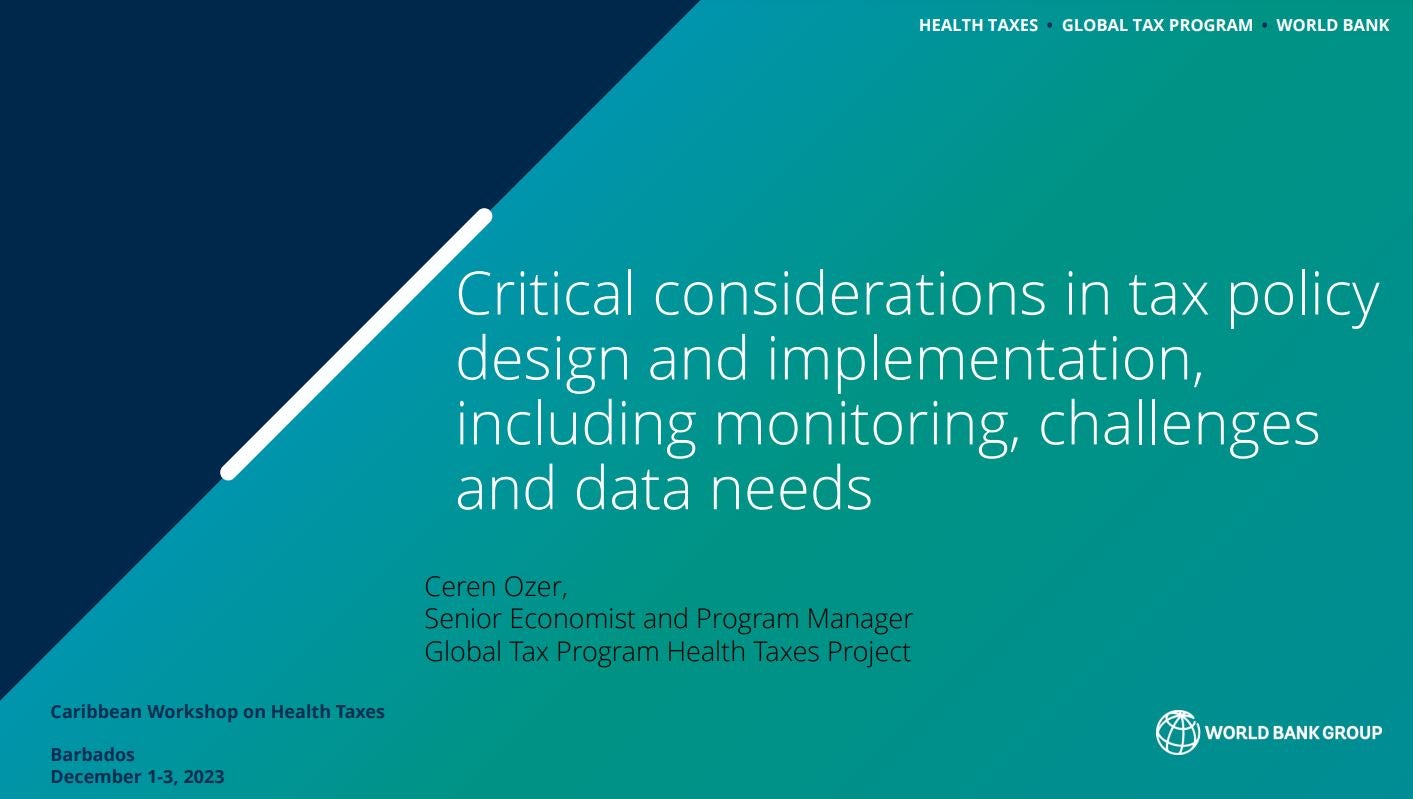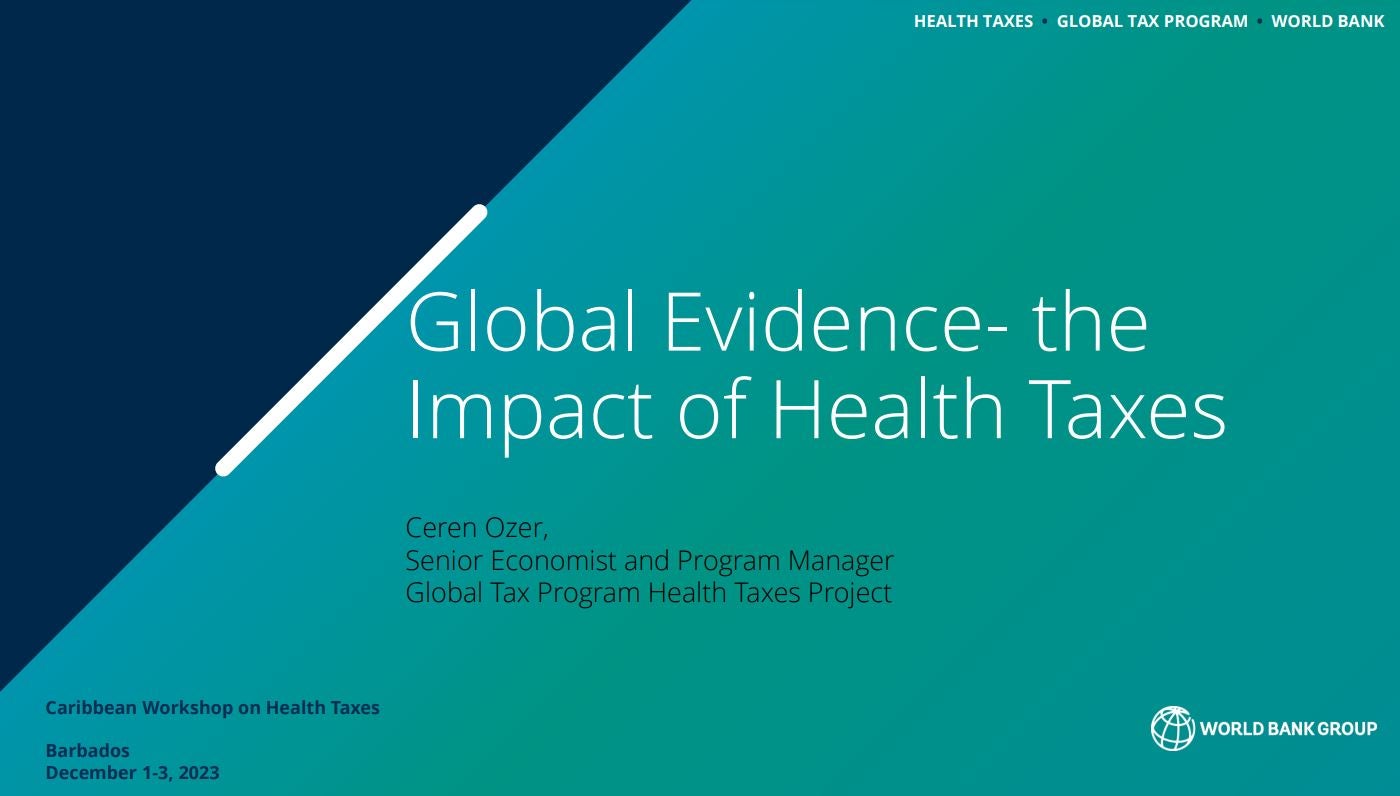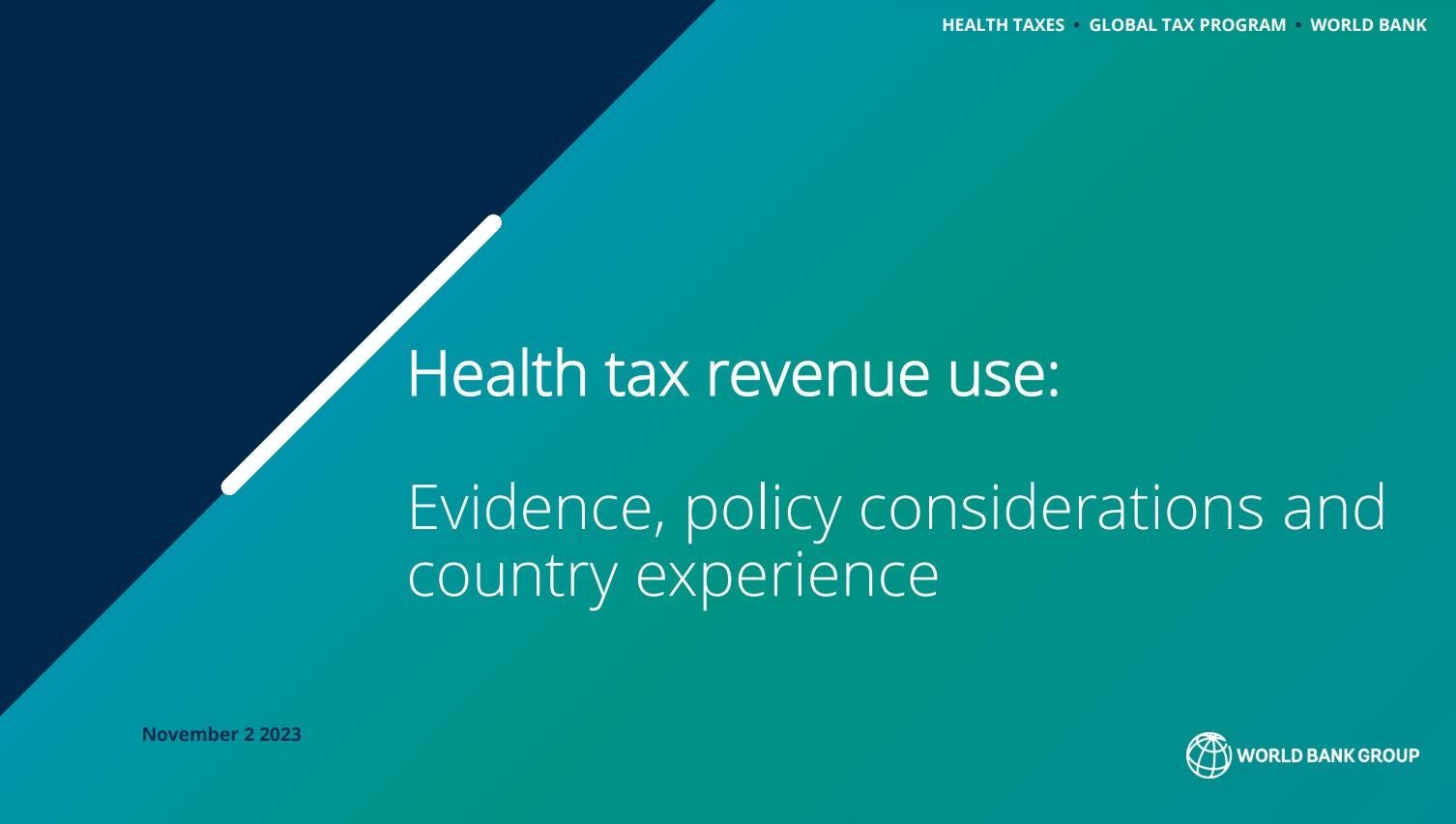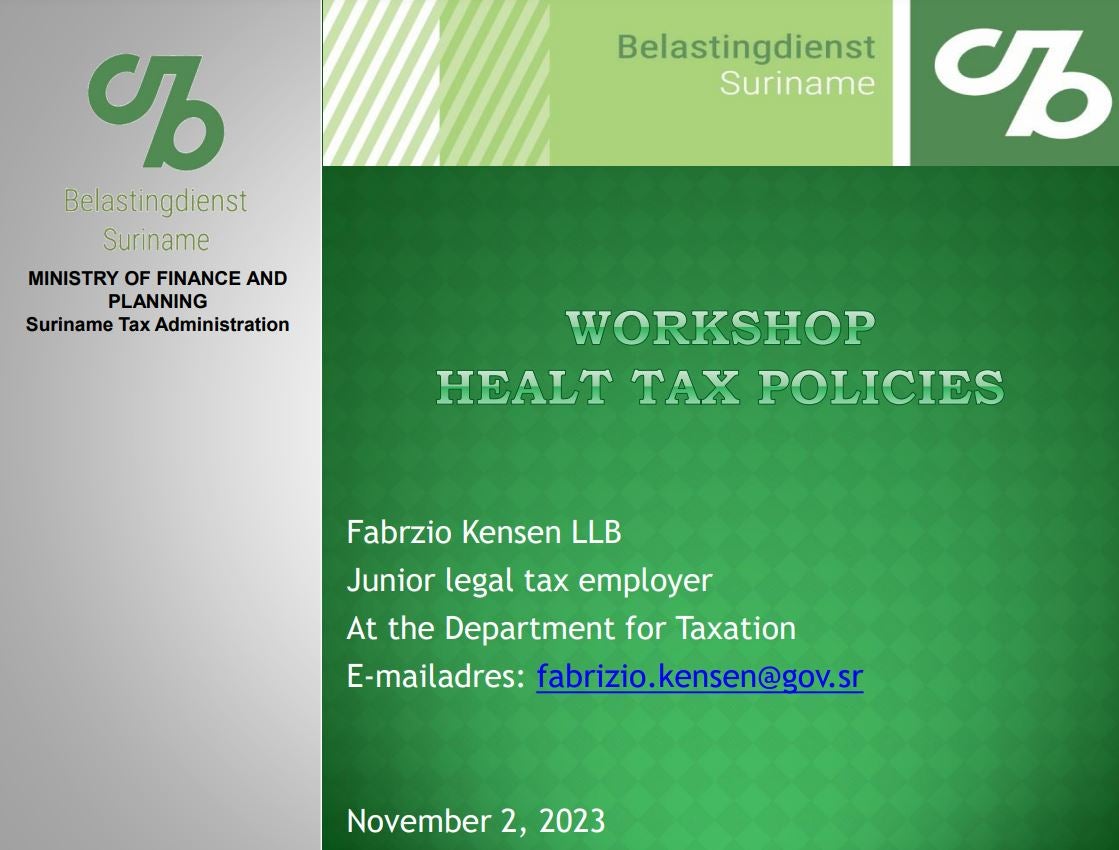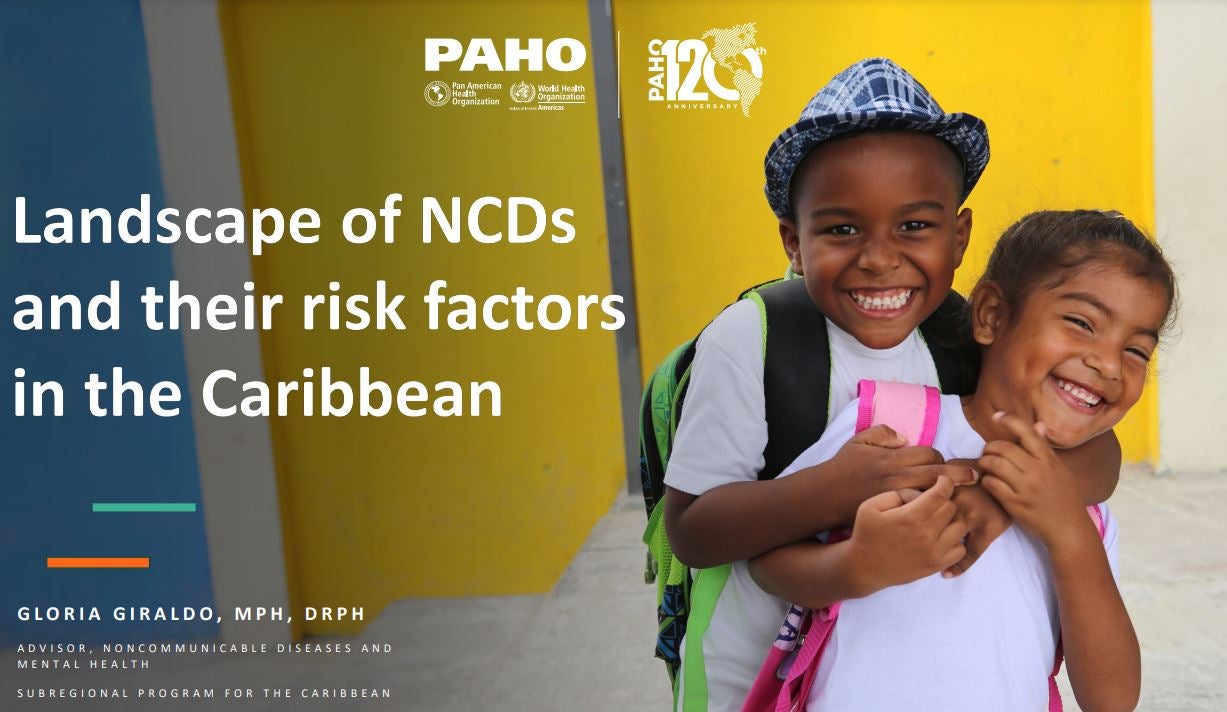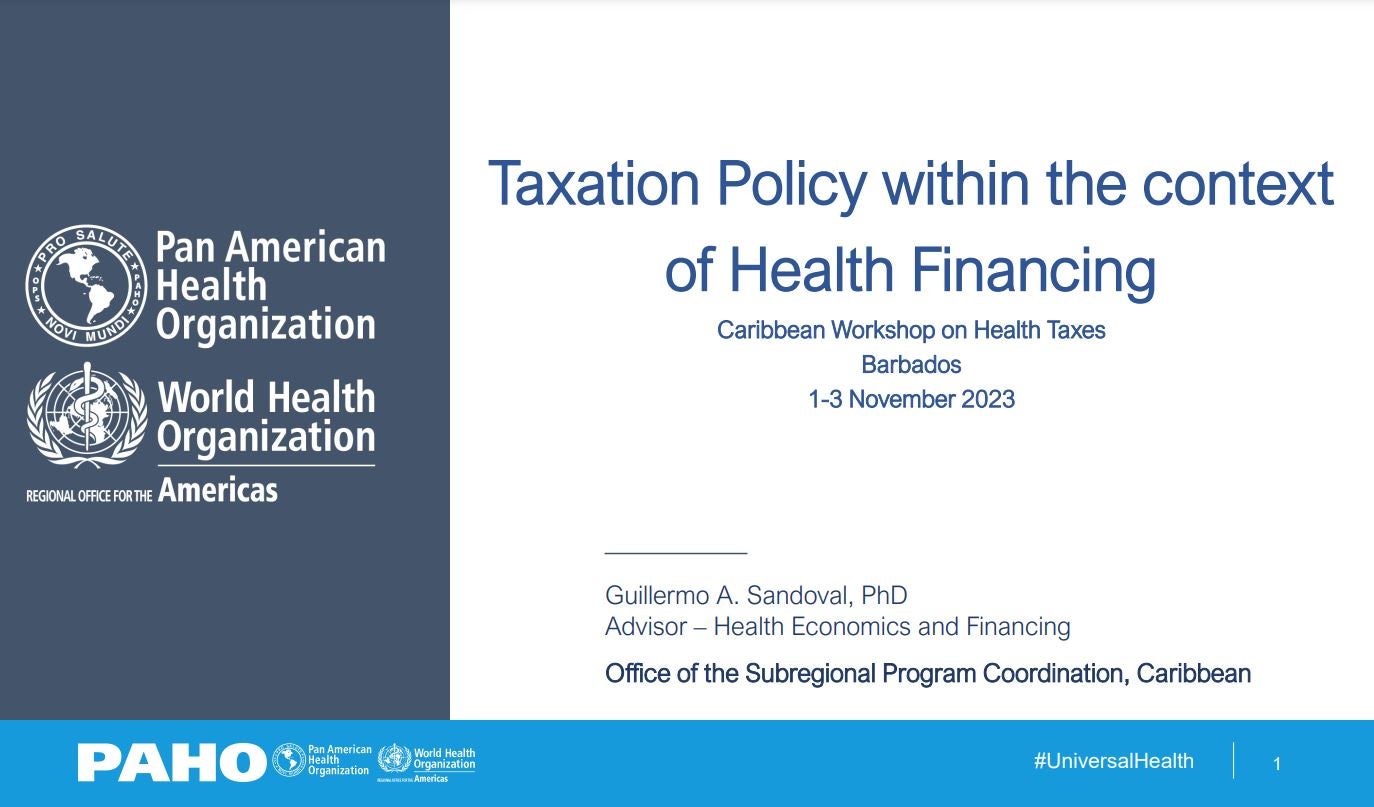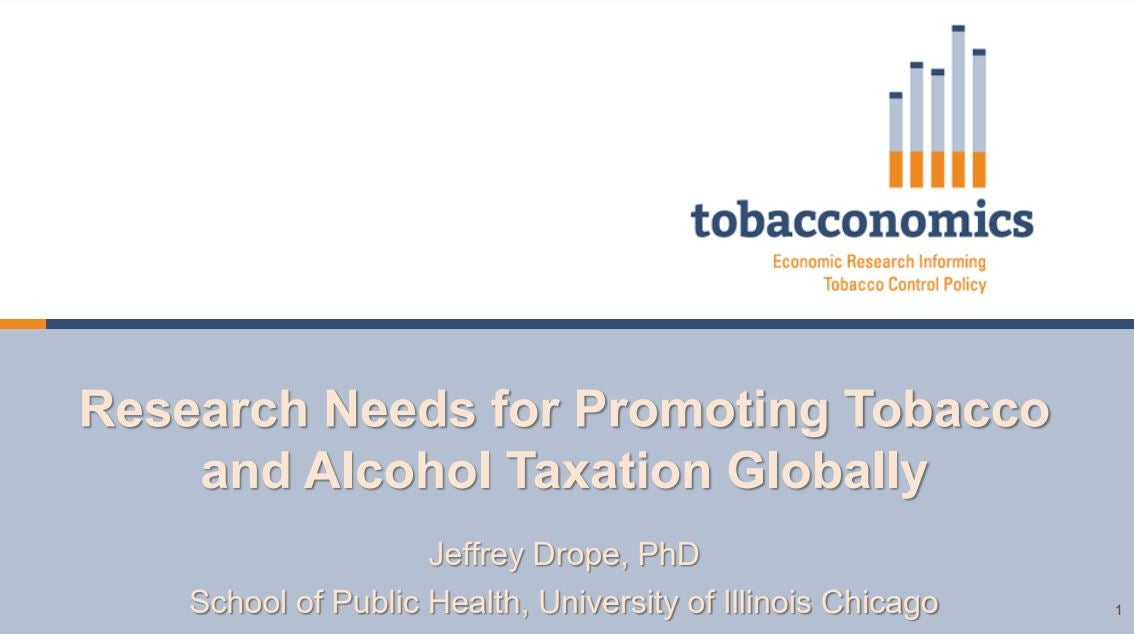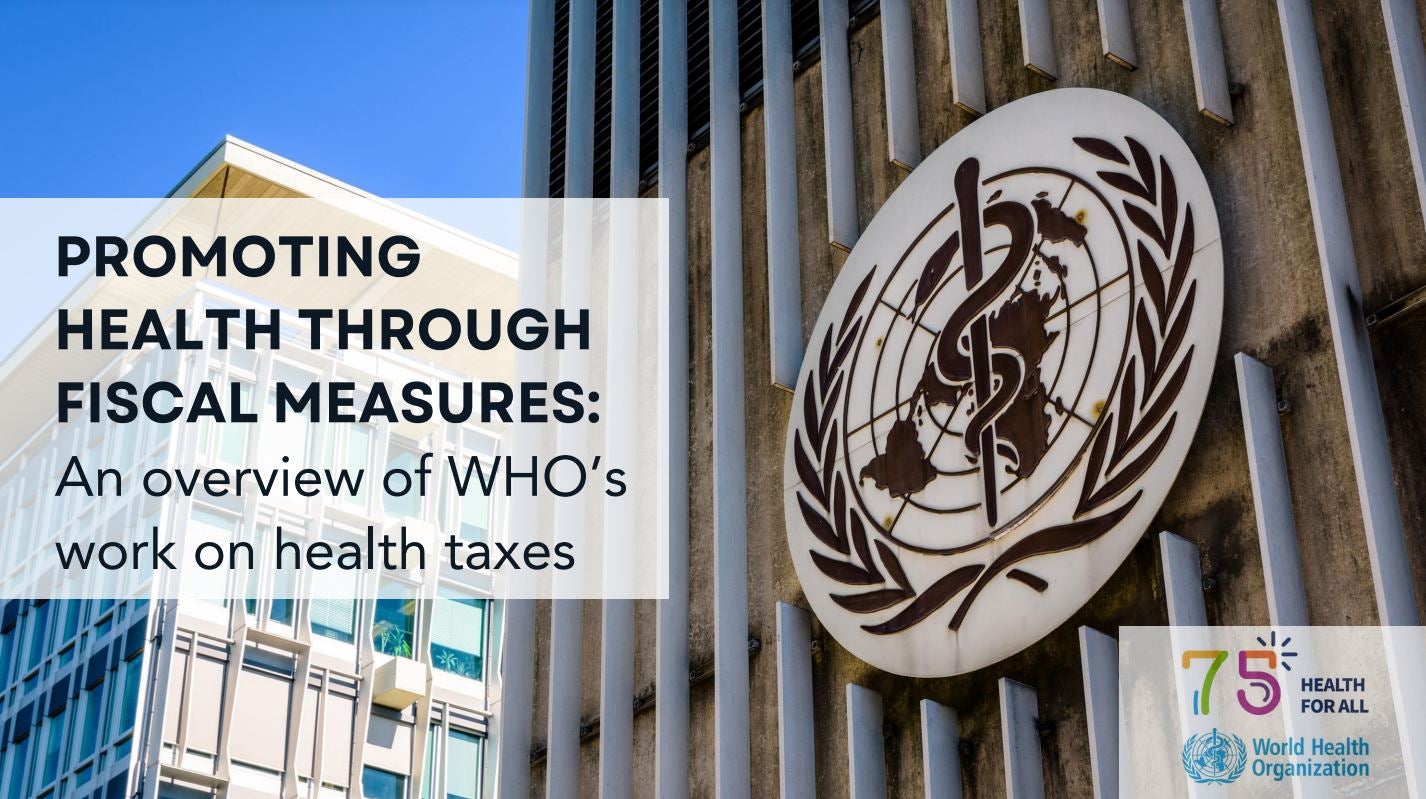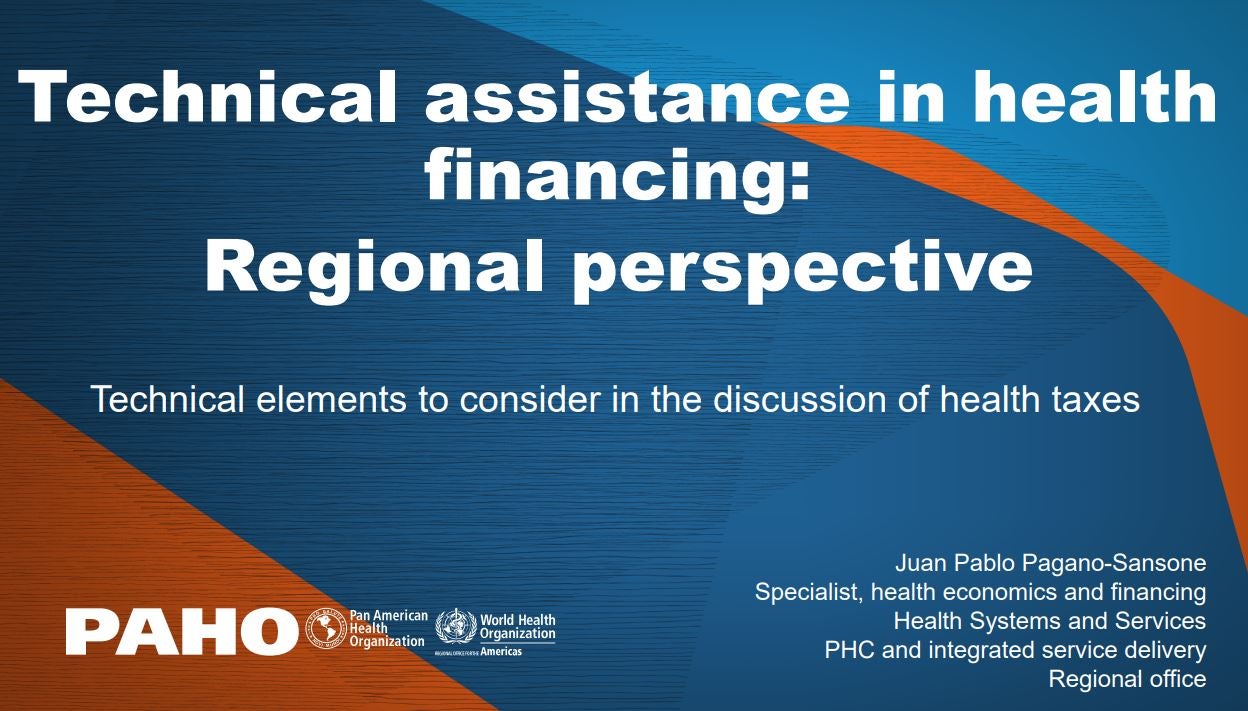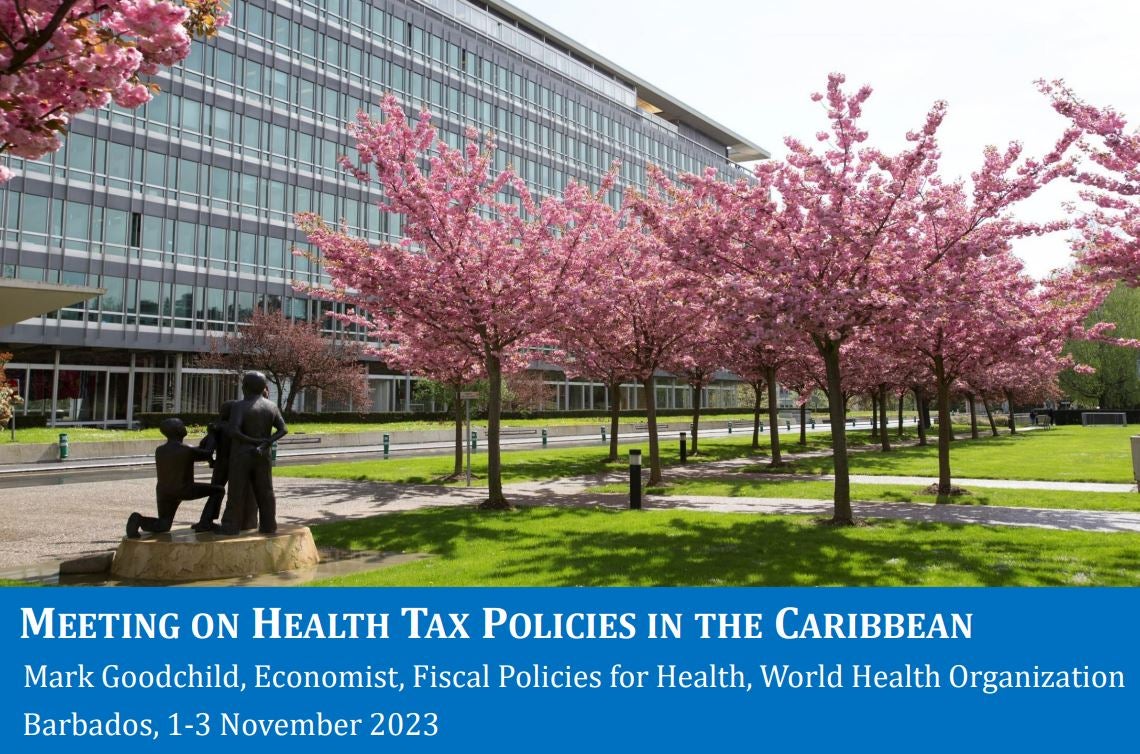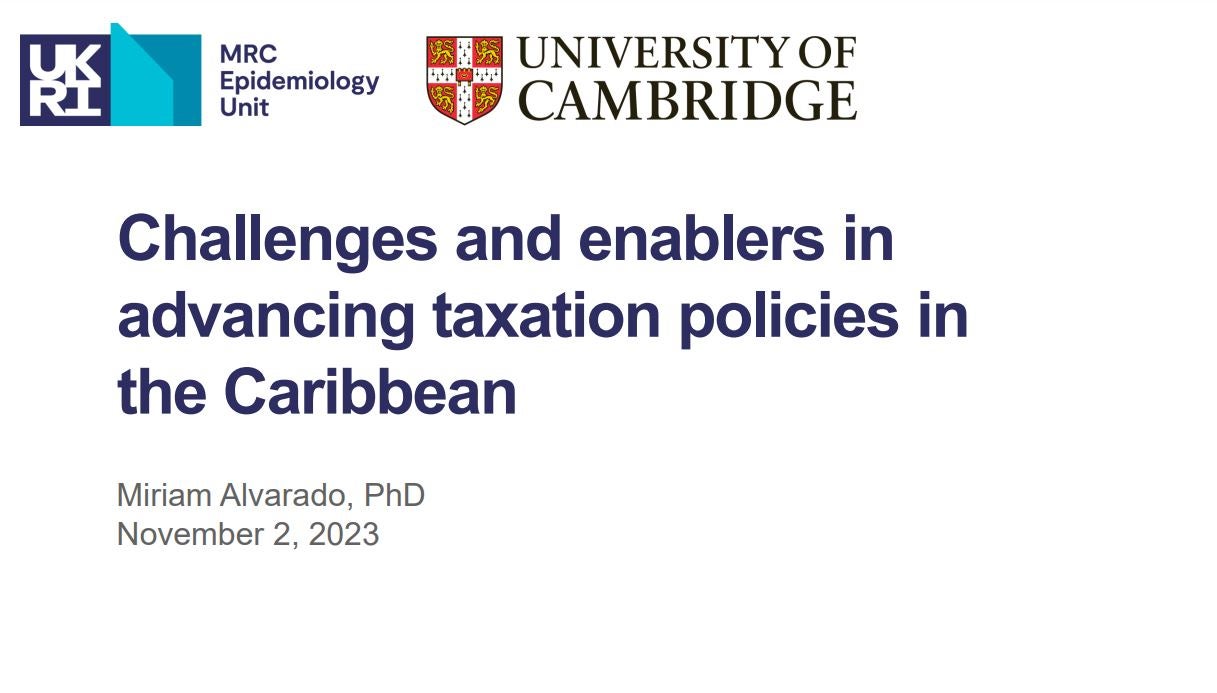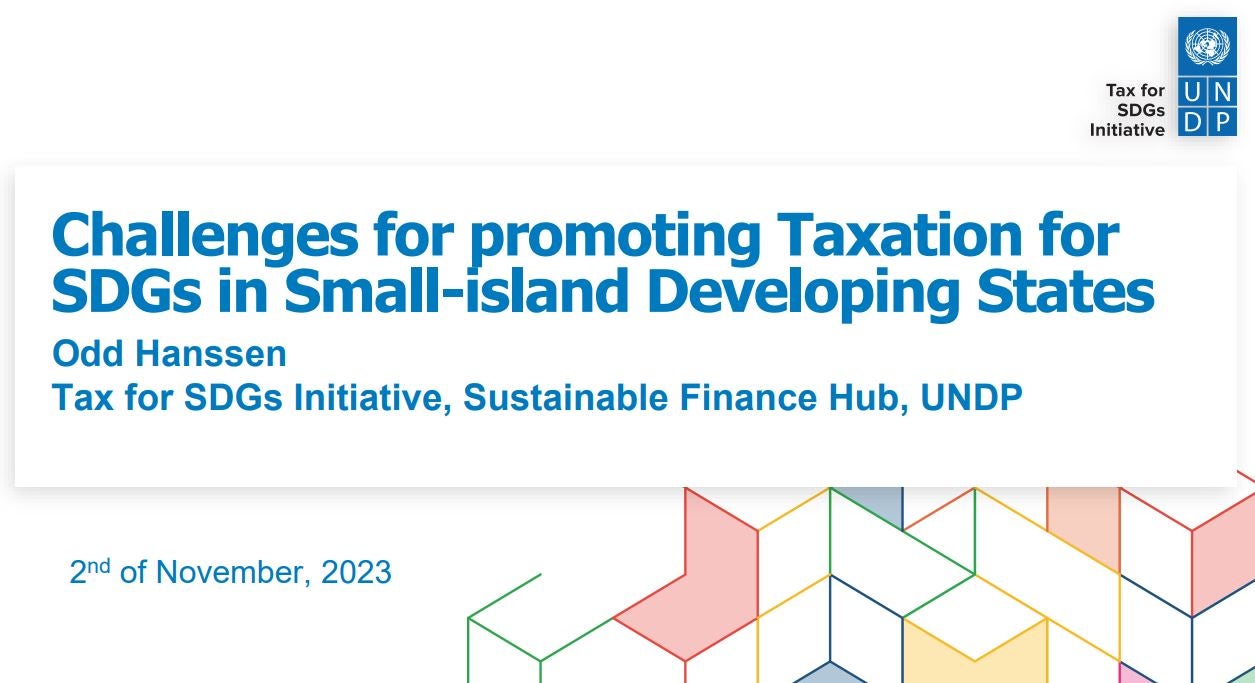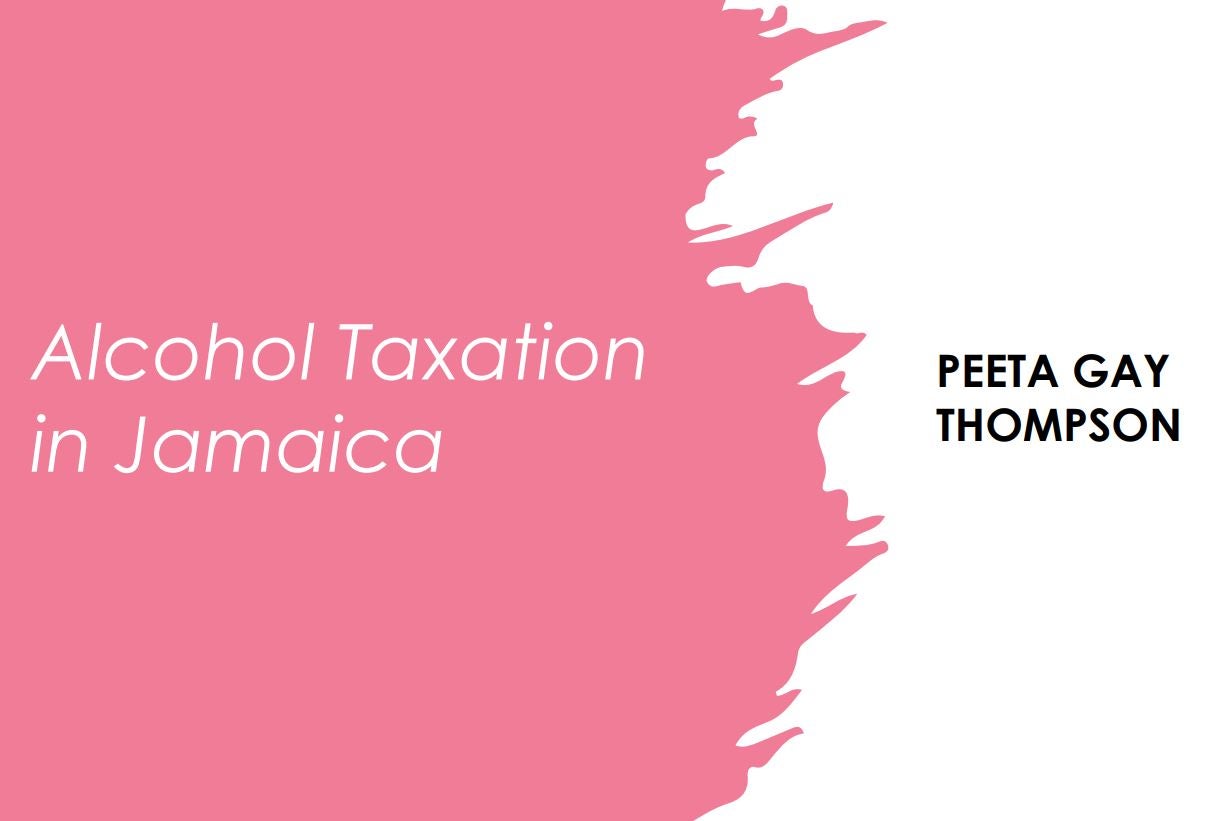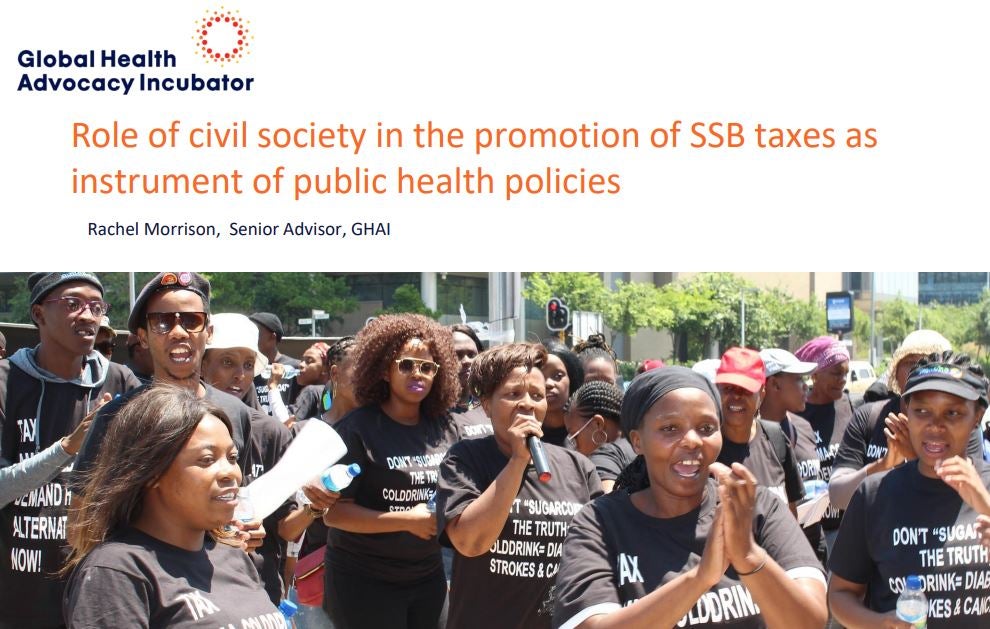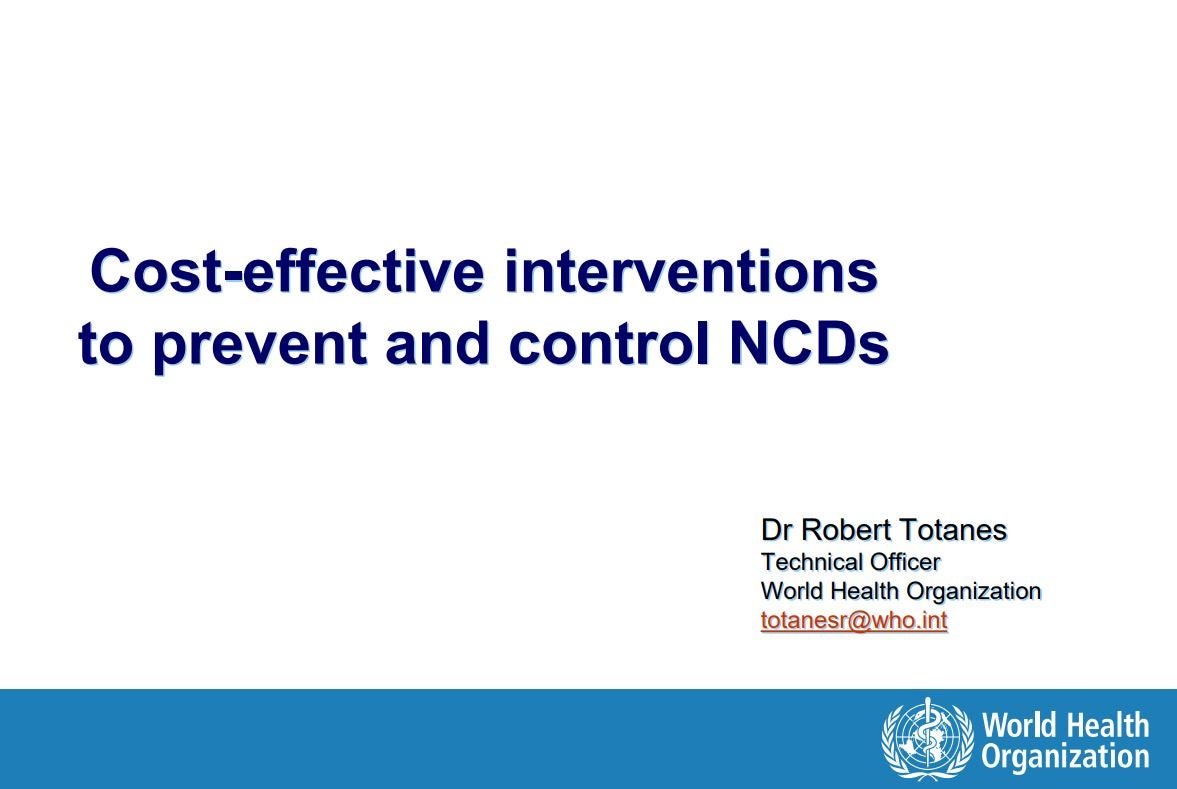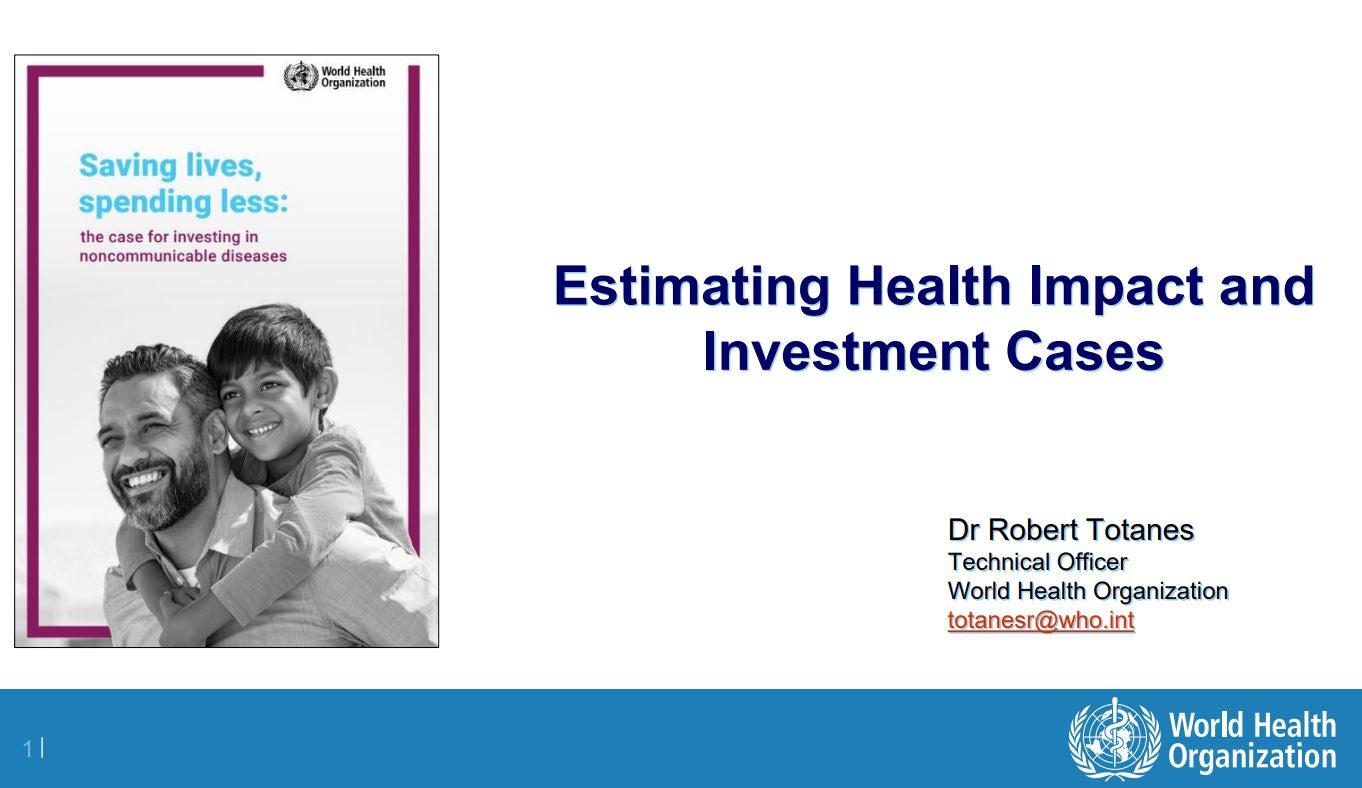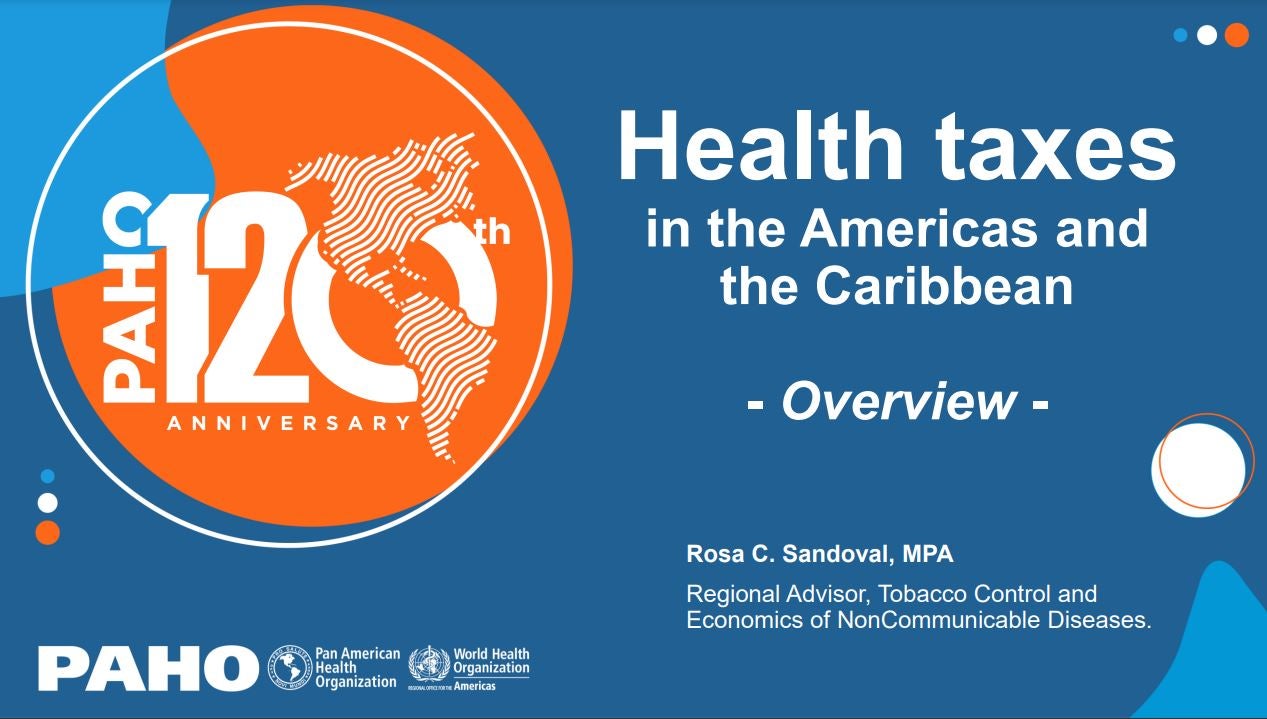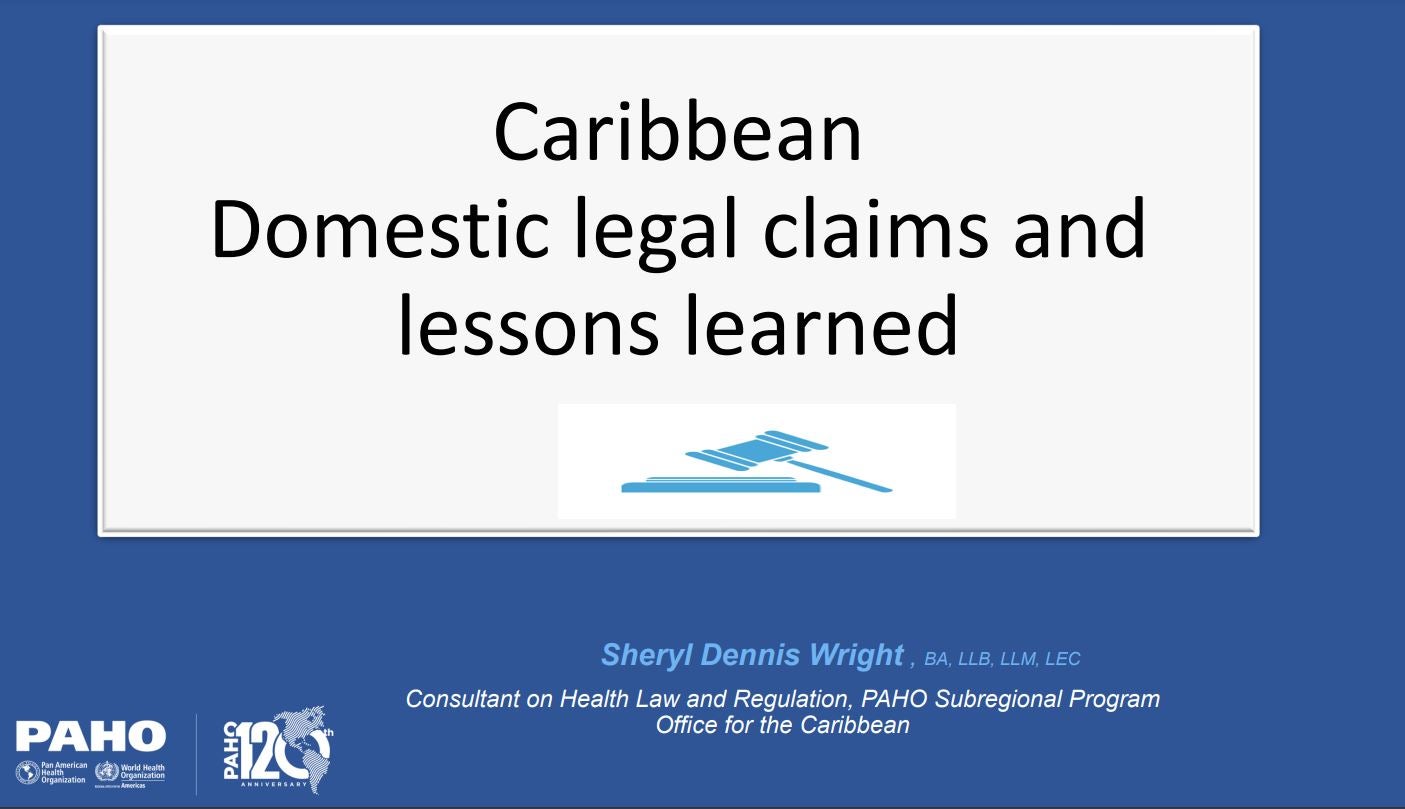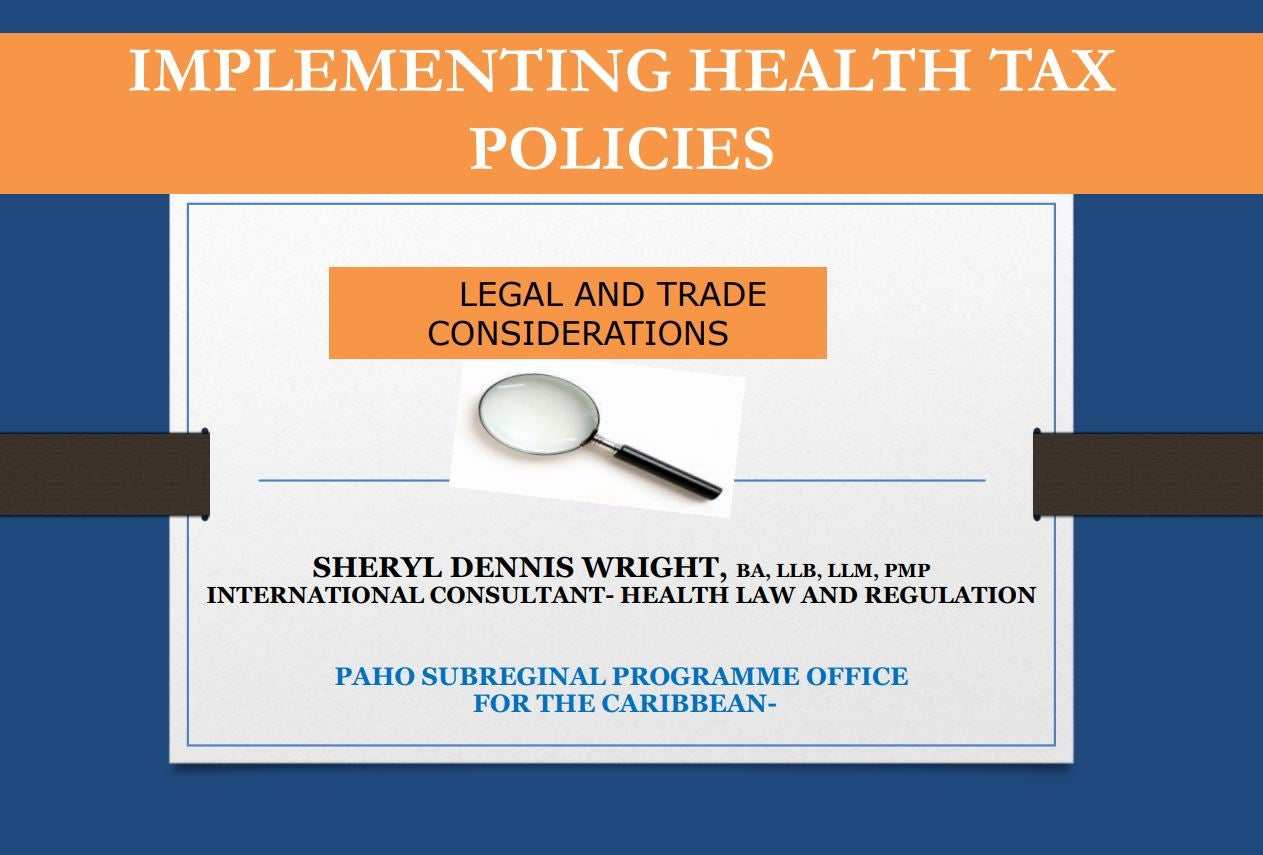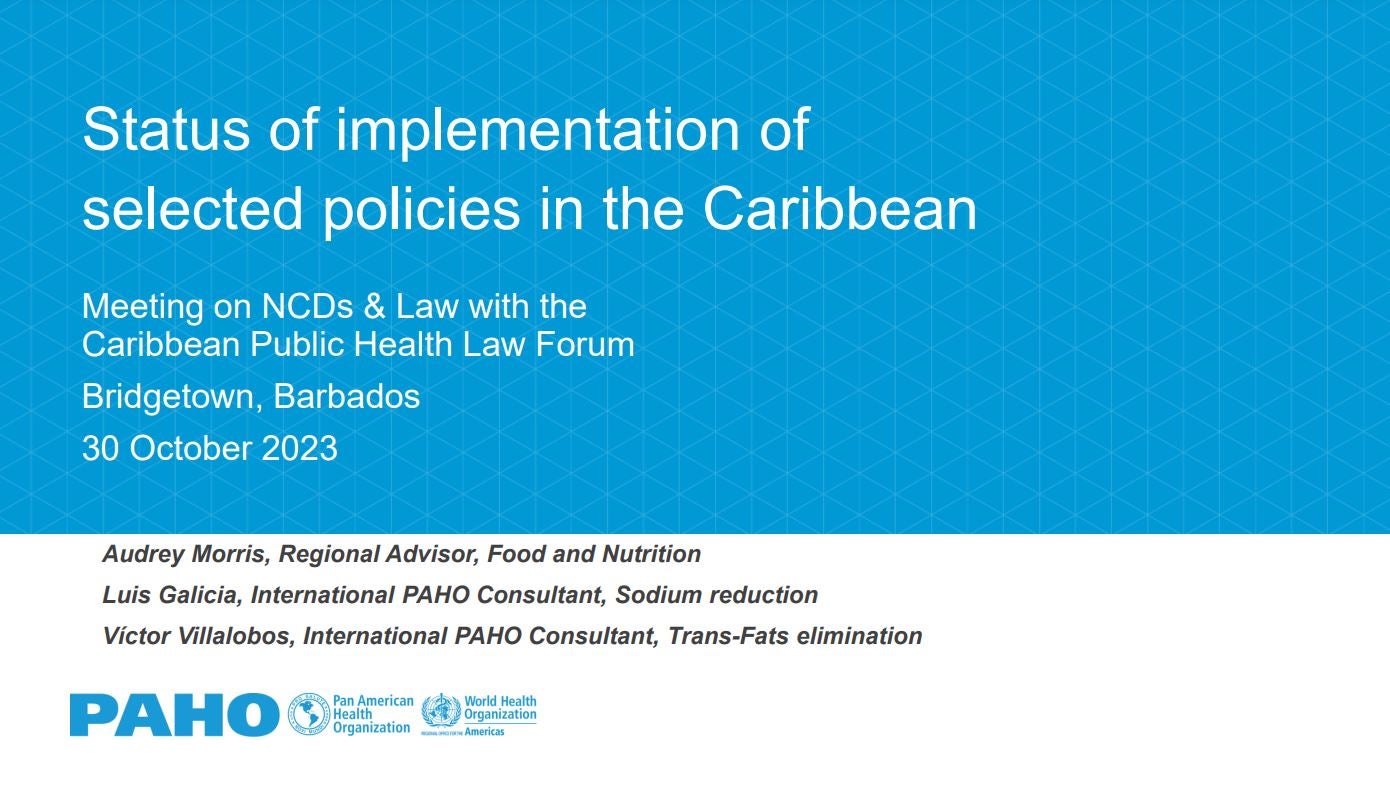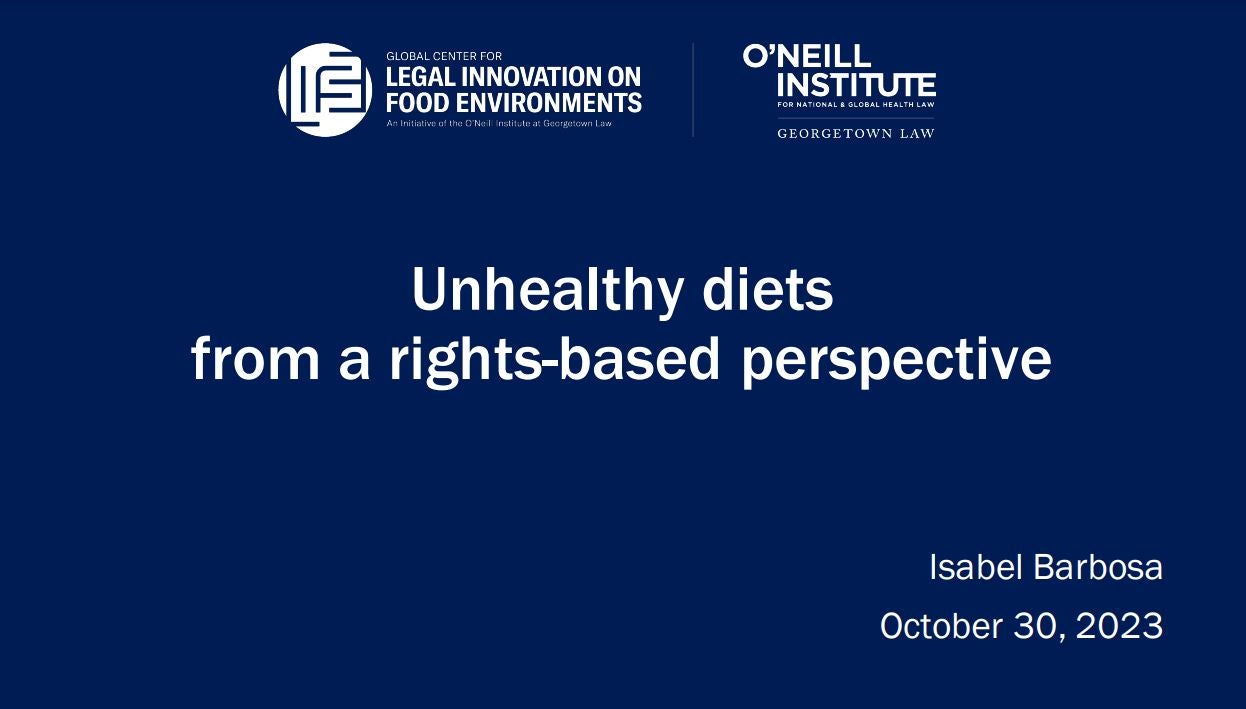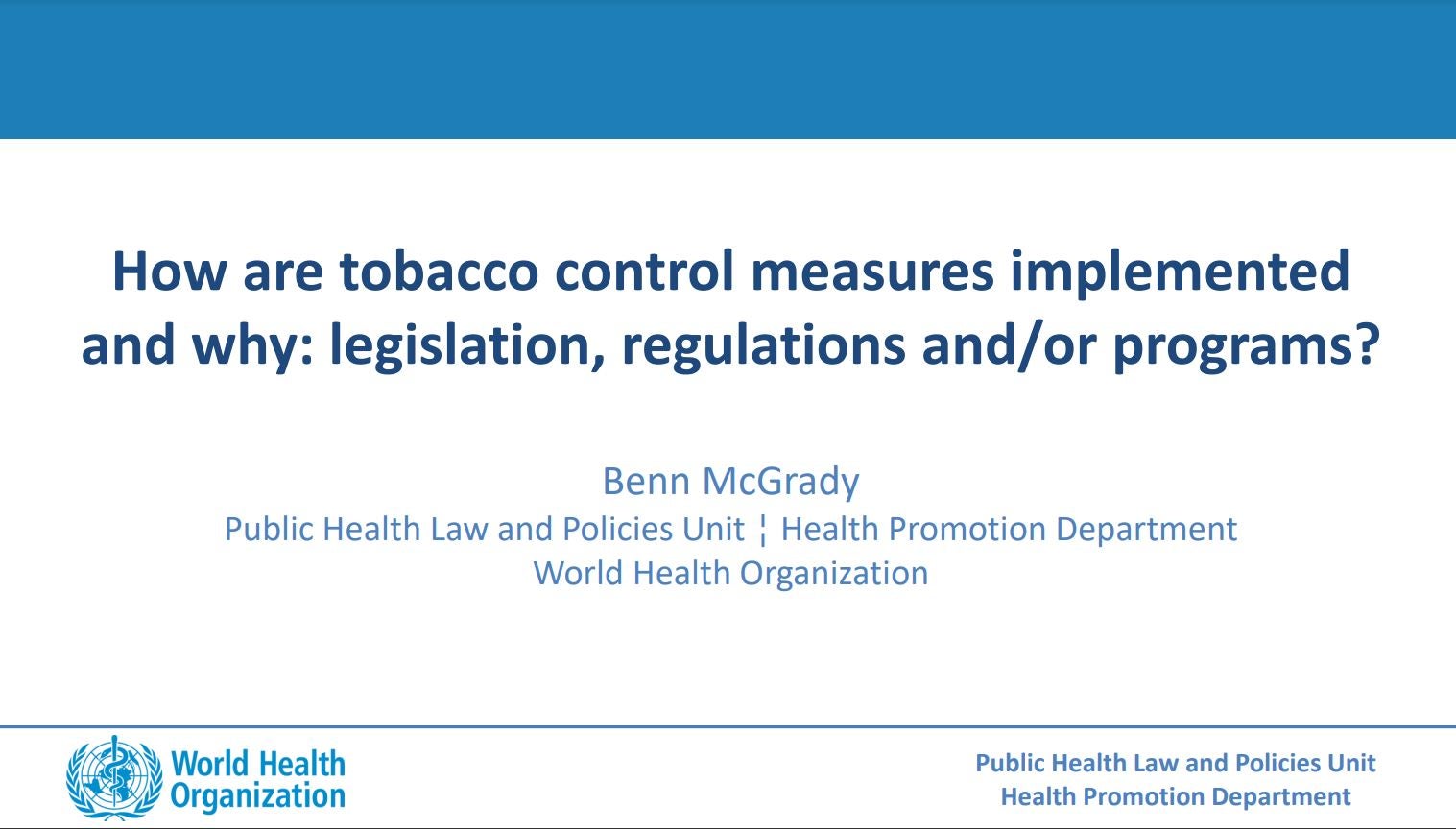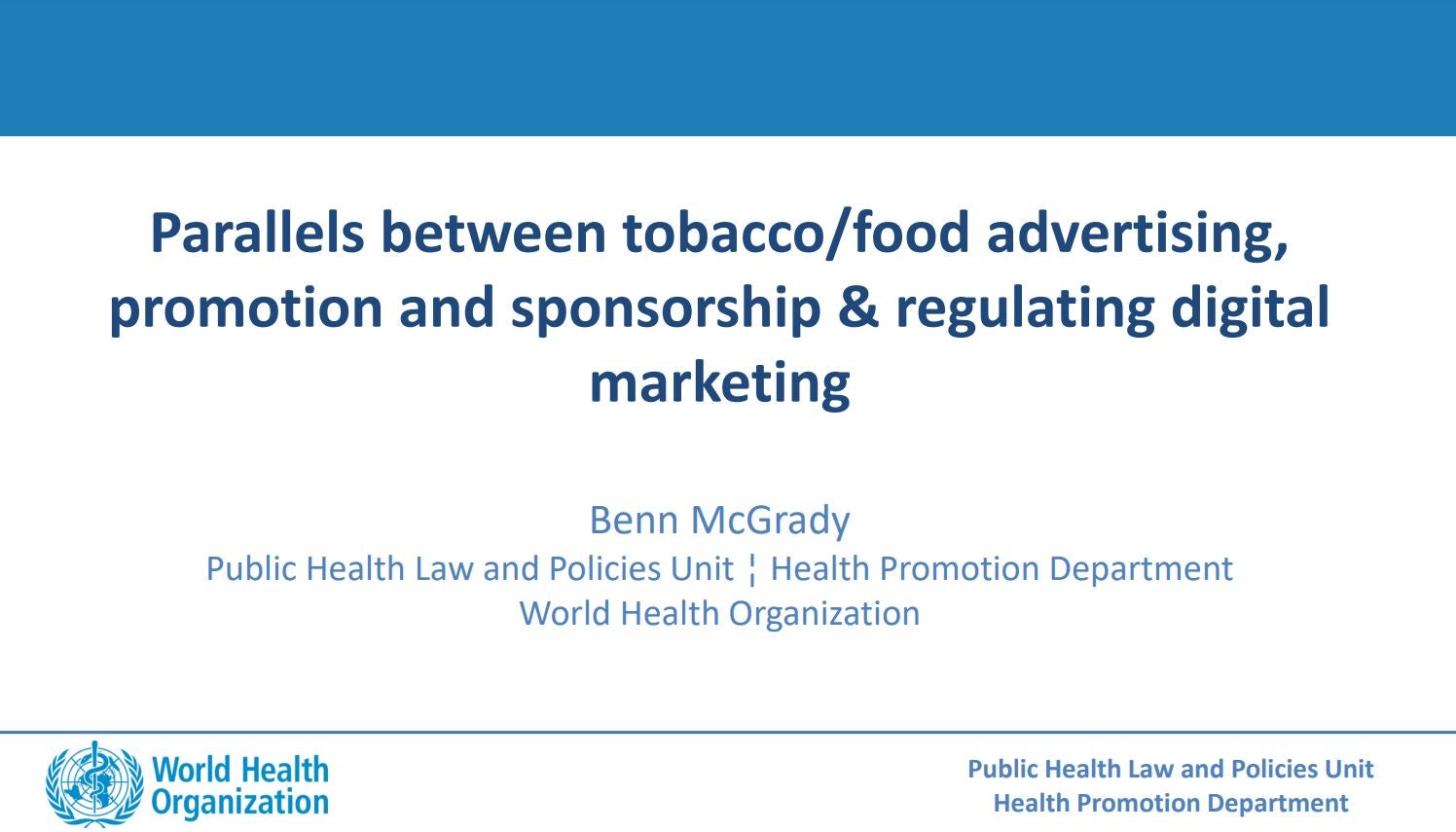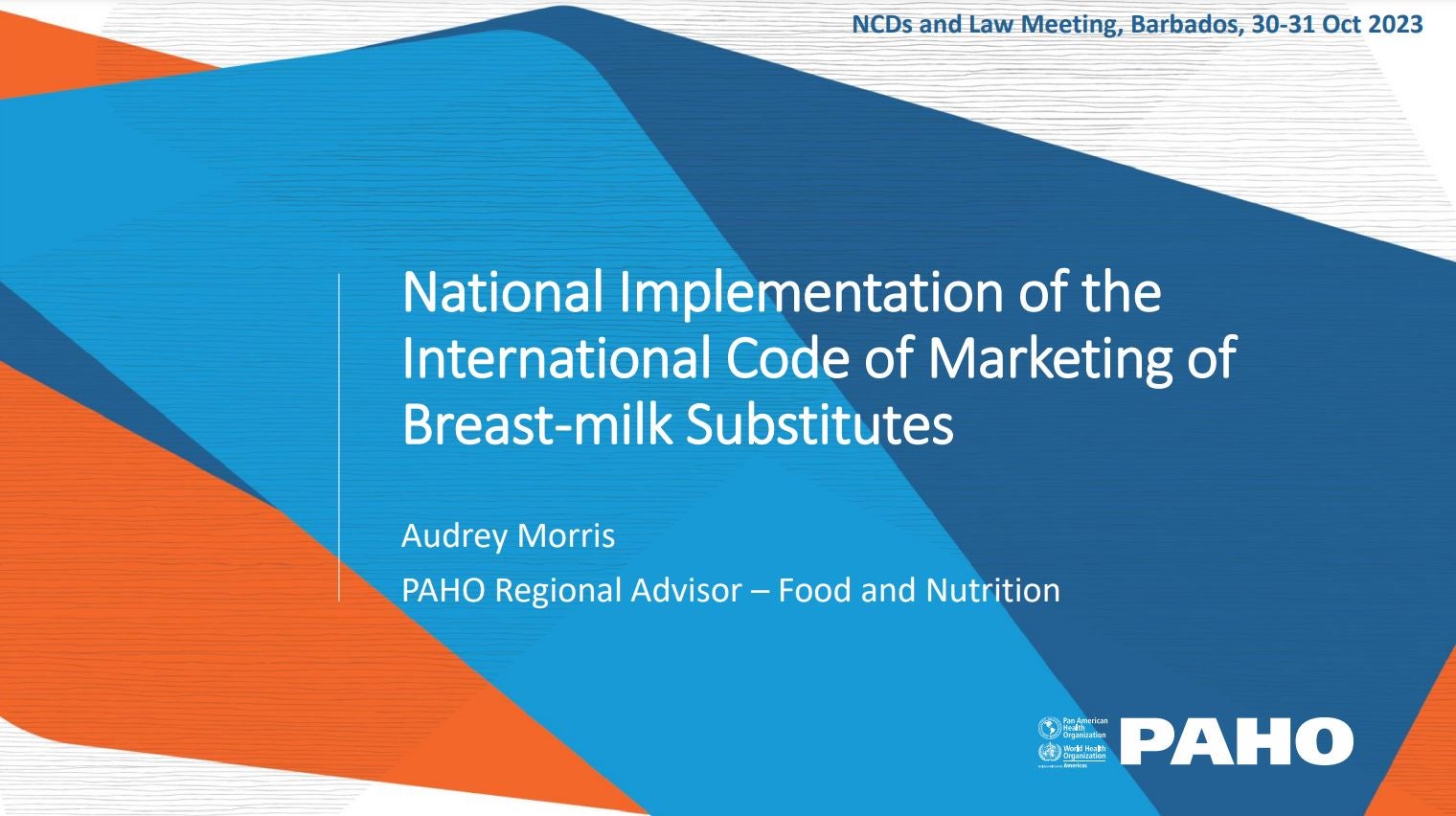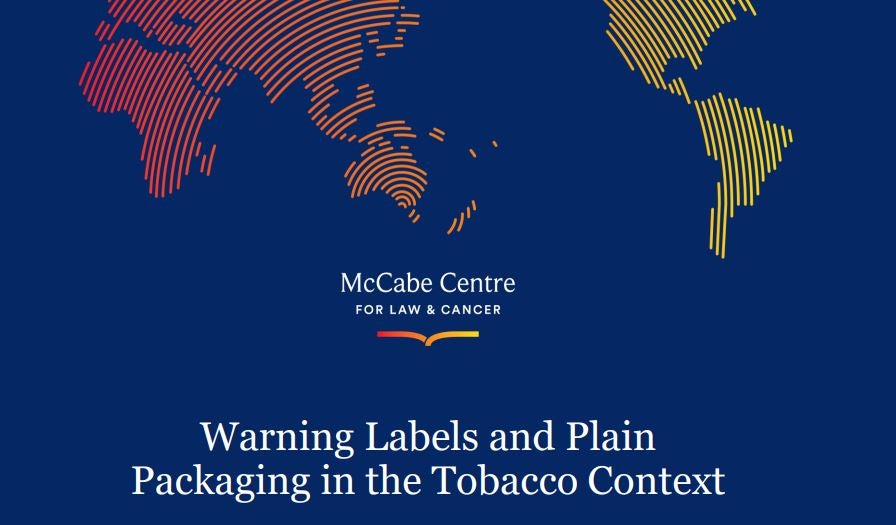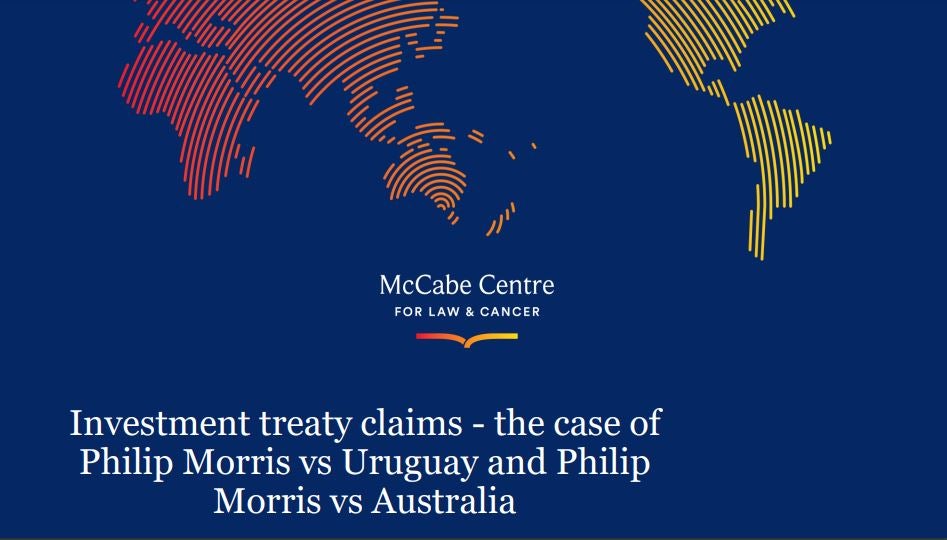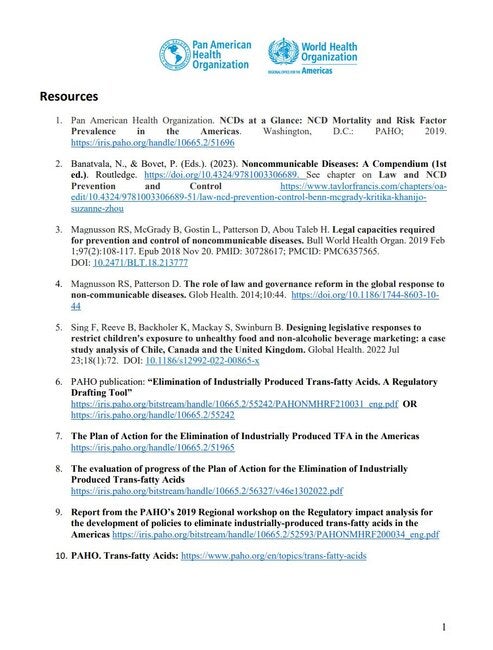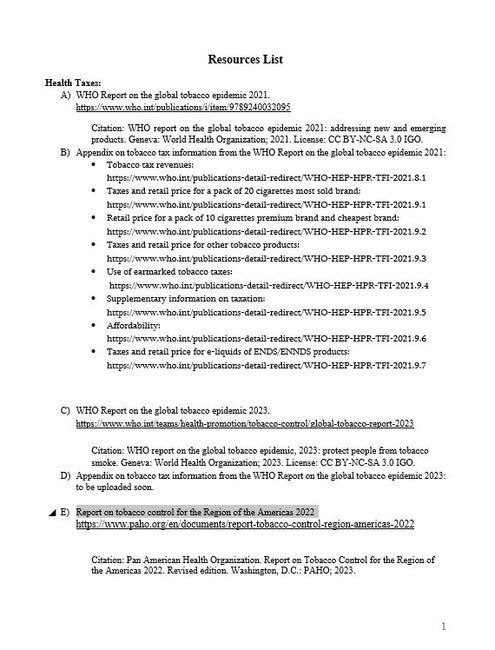From October 30th to November 3rd, the PAHO/WHO Office of Subregional Program Coordination in the Caribbean, in close collaboration with PAHO/WHO headquarters and WHO Geneva, will be hosting in Barbados two joint meetings: the Meeting on NCDs and Law with the Caribbean Public Health Law Forum (October 30th - 31st) and the Caribbean Workshop on Health Taxes (November 1st - 3rd).
This collaborative meeting aims to highlight the potential of legal and taxation policies as effective tools in the prevention and control of Noncommunicable Diseases (NCDs). It will serve as a pivotal platform uniting NCD focal points, legal experts, economists, and policy advisors who are actively engaged in the development, implementation, or evaluation of legal and regulatory frameworks, as well as health taxation strategies.
This joint meeting will count with the participation of delegates from 10 CARICOM Member States, as well as representatives from global and regional partner organizations. This event promises to be a critical juncture for sharing insights and fostering cooperation in the ongoing battle against NCDs in the Caribbean region.
Background on the role of law in curbing the NCD epidemic
October 30th - 31st
In the Caribbean, noncommunicable diseases (NCDs) – cardiovascular diseases, diabetes, cancer, and chronic respiratory diseases – and their four shared risk factors (RFs) – tobacco use, harmful use of alcohol, unhealthy diet, and physical inactivity – remain leading causes of mortality, morbidity and disability. In light of this situation, there has been a growing array of global, regional, and sub-regional initiatives aimed at addressing NCDs and their risk factors. Moreover, there has been a substantial body of research devoted to identifying cost-effective interventions focused on mitigating these NCD risk factors, commonly referred to as the WHO "Best Buys." The use of law plays a crucial role in a significant number of "Best Buys" identified by WHO, as these interventions necessitate the effective utilization of legal measures, regulations, and frameworks. Moreover, the tobacco control “Best Buys” are also part of the WHO Framework Convention on Tobacco Control (FCTC), a legally binding international public health treaty that sets out obligations on Parties to implement proven, cost-effective tobacco control measures. It is important to note that all Caribbean PAHO/WHO Member States are Parties, except for Haiti.
The Caribbean Public Health Law Forum (CPHLF), launched on June 30, 2021 by the Pan American Health Organization (PAHO) and the Caribbean Court of Justice Academy for Law (CAFL) was identified as a platform for communication, collaboration and engagement of individuals and institutions working in health and/or legal affairs, to advance the use of law to address noncommunicable diseases and their risk factors.
Furthermore, Small Island Developing States (SIDS) Ministerial Conference on NCDs and Mental Health was just held in June 2023 in Barbados, where Caribbean countries have reaffirmed their commitment to take bold action to accelerate progress on NCDs through the 2023 Bridgetown Declaration; thus, the meeting on NCDs and Law aligns completely with the committed actions.
Objectives of the meeting on NCDs & Law with the CPHLF:
- Familiarize participants with the key mandates in global and regional governance of NCDs and their risk factors, the public health rationale behind them, and the use of law as a powerful tool in the prevention and control of NCDs;
- Review the existing mapping of the legal environment for NCDs and NCD risk factor policies in the Caribbean, and analyze their design, implementation and enforcement;
- Share international best practices on regulation of risk factors and their interaction with trade and investment policy;
- Facilitate inter-sectoral coordination between different sectors, aimed at fostering effective regulation for the prevention and control of NCDs and their RFs; and
- Discuss and agree strategic actions on utilizing the CPHLF as a vehicle to advance the review, strengthening, enactment, implementation and enforcement of NCD and NCD risk factor related laws and regulations in the Caribbean. In this context, the Meeting will be used to:
- Promote the implementation of the WHO FCTC in the Caribbean countries, having regard to the Smoke-free Caribbean mandate and regional commitment (by 2022) which was not achieved, and having regard to the overall goal of the Bridgetown Declaration on NCDs and Mental Health 2023;
- Raise awareness of the front of package labelling system for pre-packaged foods and the regional process to adopt such a system and equip participants to make appropriate policy decisions, having regard to the available scientific evidence around octagonal warning labels;
- and Raise awareness of the regulatory measures for obesity prevention through the set of technical packages, including the SHAKE Technical Package for Salt Reduction and the REPLACE action package to eliminate industrially-produced trans fatty acids, among others.
Intersection with the Caribbean Workshop on Health Tax Policies
November 1st - 3rd
Tax policies are a critical tool in addressing the NCD burden faced by the Caribbean. Health taxes are considered win-win-win policies because they save lives and prevent disease (along with associated health costs), while also advancing health equity and mobilizing additional revenues for a government’s general budget. This means health taxes may have the potential to ease some of the current and future pressures on health systems.
The meeting of the Caribbean Public Health Law Forum will therefore intersect with the Caribbean Workshop on Tax Policies which proposes to target CARICOM countries that are committed to, or interested in implementing or strengthening health taxes, or that are already at some point along the policy development/reform process for other regulatory measures against NCDs. The overall aim is to build momentum to accelerate the policy process in member states and to build upon the findings and recommendations identified in the 2017 workshop on taxation in the Caribbean with a view to expediting progress in the area and establishing country roadmaps to serve as guiding frameworks for policymakers and stakeholders.
The workshop will provide countries with the necessary technical tools, evidence, and knowledge to advance health taxation policy in the Caribbean.
Objectives of the workshop:
- To continue positioning health taxes as a cost-effective public health measure for the prevention and control of NCDs;
- To identify technical assistance, evidence needs and opportunities to advance taxation policy in the Caribbean region; and
- To guide country-specific roadmaps to inform policy and implementation decisions.
Participating entities
- CARICOM Member States
- Caribbean Public Health Agency (CARPHA)
- Healthy Caribbean Coalition
- CARICOM Secretariat
- Caribbean Court of Justice Academy for Law
- The University of West Indies, Cave Hill Campus – Law and Health Research Unit
- The University of West Indies, St. Agustine Campus – Centre for Health Economics.
- The University of West Indies, George Alleyne Chronic Disease Research Center
- Global Health Advocacy Incubator
- Campaign for Tobacco-Free Kids
- O'Neill Institute for National and Global Health Law, Georgetown University
- McCabe Centre for Law and Cancer
- Pan American Health Organization/World Health Organization (PAHO/WHO).
- World Health Organization (WHO)
- World Bank
- Organization for Economic Co-operation and Development (OECD)
- University of Illinois at Chicago (UIC)
- Adolfo Ibañez University (UAI)
- United Nations Development Programme (UNDP).
Speakers
Ignacio Ibarra
Ignacio Ibarra, serves as the Regional Advisor for Health-Related Law at the Regional Office of the Pan American Health Organization/World Health Organization, since 2014, whose main functions are to support the countries of the Americas in strengthening, harmonizing, and updating their legal frameworks and regulatory measures to promote the right to health, its main determinants and reduce social inequalities. In the exercise of these activities, he also promotes bridges of communication and reflection with Congresses, Parliaments, and legislative Assemblies, as well as with the Supreme Courts of Justice and civil society on health law.
Gloria Giraldo
Dr. Giraldo is the noncommunicable diseases and mental health advisor for the Caribbean Subregional Program at PAHO. She joined PAHO in 2016 in the Noncommunicable Disease and Mental Health Department in Washington. Prior to PAHO, she worked in the public and non-profit health sectors throughout the United States and the Americas designing, managing, and evaluating public health programs. She holds a bachelor’s degree in psychology from the University of California, Los Angeles (UCLA), a Master’s degree in public health from the University of Michigan, and a doctorate in public health from UCLA.
Gladys Young
Gladys Young, an Attorney-at-Law with expertise in international law and regional integration, is the Assistant General Counsel at the Caribbean Community Secretariat responsible for the CARICOM Single Market and Economy. In addition to the CSME, Ms. Young provides advice on the interpretation of the Revised Treaty; drafting of treaties and other arrangements, health and trade issues, among other matters. Ms. Young has a wealth of experience regarding the Caribbean Court of Justice, having appeared before the Court on numerous occasions and having been involved in the negotiations of the Agreement establishing the Caribbean Court of Justice and preparation of the rules of the Court in its Original Jurisdiction.
John Coombs
Mr. John Coombs is a national of St. Vincent and the Grenadines. He holds an LL.B. (Hons.) and an LL.M. Legislative Drafting (Merit), both from the University of the West Indies, Cave Hill Campus. He is admitted to practice as an Attorney-at-Law in St. Kitts and Nevis and St. Vincent and the Grenadines, having received his LEC from the Hugh Wooding Law School in 2019. He currently serves as Judicial Counsel at the Caribbean Court of Justice.
Rosa Sandoval
Rosa Sandoval has been with the Pan American Health Organization/World Health Organization since 2003 where she has held positions of increasing responsibility for noncommunicable diseases. Rosa leads PAHO technical cooperation on tobacco control and coordinates the team on the Economics of Noncommunicable Diseases with the objective of facilitating the generation and use of sound evidence supporting policy coherence aimed at curbing the NCD epidemic. She is a Public Administrator from the Maxwell School of Citizenship and Public Affairs, Syracuse University (2000), and a former De Sardon Glass fellow. She also holds a Degree in Economics from the Pontificia Universidad Católica of Peru (1995), her home country.
Luciana Severini
Luciana Severini is a lawyer from the National University of Córdoba and has studied public policy at Torcuato Ditella University in Argentina. Currently, Luciana works as an international consultant at the Pan American Health Organization regional tobacco control team.
Benn McGrady
Benn McGrady is the Unit Head of the Public Health Law and Policies team in the Department of Health Promotion at WHO. With more than 15 years of experience working as a lawyer on health issues, Benn assists Member States to develop and defend laws relating to risk factors for NCDs.
Claire Slattery
Clare Slattery is a Legal Policy Advisor at the McCabe Centre for Law and Cancer. Clare’s work focuses on the interplay between public health, trade, and investment law in relation to NCD prevention. Prior to working at the McCabe Centre, Clare worked as a Legal Research Officer at the Supreme Court of Queensland Library and as a Junior Legal Consultant at the Extraordinary Chambers in the Courts of Cambodia. Clare has a BEcon/LLB from The University of Queensland.
Isabel Barbosa
Isabel Barbosa is a senior associate with the Health and Human Rights Initiative at the O’Neill Institute and an adjunct professor of law at Georgetown University. She is engaged in scholarship, capacity building, and technical assistance activities related to sexual and reproductive health, as well as non-communicable diseases, particularly tobacco control and food systems. Barbosa is the recipient of the Global Health Law Scholarship from Georgetown, the Ling Institute Fellowship for Graduate Studies, and the CEAL-Santander Fellowship for Studies Abroad. Barbosa holds an LL.M. in global health law with a certificate in international human rights law from Georgetown University.
Audrey Morris
Dr. Morris is a Regional Food and Nutrition Advisor at the Pan American Health Organization, based in PAHO’s Jamaica Office, from which she carries out PAHO’s technical cooperation in nutrition to countries in the region of the Americas, with a special focus on support to Caribbean countries. Prior to that, she worked with the Caribbean Food and Nutrition Institute (CFNI), a PAHO center. She has several years of experience in the field of public health nutrition, and in supporting and guiding food and nutrition programs and projects in PAHO member countries.
Luis Galicia
Luis Galicia is a dietitian from the Del Valle University in Guatemala, he holds a Masters In International Public Health from the National Health Institute in Madrid, Spain and is pending a thesis to complete a Masters in Public Health Nutrition from the Catholic University in Uruguay. He has over 20 years of experience working in national and international public health nutrition, including the Ministry of Health in Guatemala, the University of Miami, UNICEF, the World Bank, the Development Bank of Latin America, the Ministry of Health of Uruguay, and currently as a consultant for sodium reduction at PAHO.
Víctor Villalobos
Víctor Villalobos, PhD. (Psychology/Nutrition/Behavioral Design) Víctor Villalobos focused on the design and improvement of programs and policies in Public Health Nutrition. He currently supports the Risk Factor and Nutrition Unit at PAHO WDC, NMH department (consultant). His life is a list of failures. Failing to get a scholarship to study abroad, until he made it. Failing to work with PAHO, until he did it. And hopefully, failing to support Trans-fat elimination in the Caribbean, until we all get there!
Fabio Gomes
Fabio Gomes is a Nutritionist, with a Master's in Population Studies and Social Research and a PhD in Public Health. He works as the Regional Advisor on Nutrition and Physical Activity for the Americas at the Pan-American Health Organization/ World Health Organization supporting countries to design and implement effective food and nutrition public policies as well as to protect such policies from opposing interests.
Abigail Caleb
Ms. Caleb is a Registered Nutritionist/Dietitian/Public Health Nutritionist with over 13 years of experience in the field of nutrition, food security, and public health. Her professional experience includes developing, coordinating, implementing, training, monitoring, and evaluating nutrition programs and projects for the prevention and management of malnutrition and NCDs throughout the life course; assisting in the development, implementation, monitoring, and evaluation of policies, strategies, plans, and guidelines; and designing and conducting studies on food security and nutrition issues.
Sheryl Dennis Wright
Sheryl Dennis Wright is an Attorney at Law with over 13 years of experience in providing advice on matters of global public health significance including to the government of Jamaica. She has been engaged as a Tutor/Adjunct Lecturer in Health-related law and has supported capacity building in various areas. Sheryl is also a certified Project Manager and holds a Master of Law, with specialization in Commercial, Corporate Law, and International Dispute Resolution. Since 2021 Sheryl has been engaged by PAHO as an International Consultant – NCDs and Mental Health, where she now provides technical support to the Caribbean subregion on matters related to Health Law and Regulation.
Juliet McHardy
Juliette McHardy, BA, LLB, LLM, is an economic and commercial determinants consultant with WHO HQ’s Social Determinants of Health Department. Juliette has been with WHO for over four years working across the Tobacco Control Economics, Fiscal Policies for Health, Ambassador for NCDs and Injuries, and Economic and Commercial Determinants of Health units. She is an admitted barrister and solicitor of the High Court of New Zealand and was previously a fellow with the O'Neill Institute for National and Global Health Law.
Sir Trevor Hassell
Sir Trevor Hassell is President of the Healthy Caribbean Coalition and past Chairman of the Barbados National NCD Commission. He is a Fellow of the American College of Cardiology and Fellow of the Royal College of Physicians of London, England, a retired Adjunct Professor of Medicine, UWI, and Consultant Physician, and a past Director of Medical Services at the Queen Elizabeth Hospital, Barbados. Sir Trevor has held the positions of President of the Caribbean Cardiac Society, President of the Inter-American Heart Foundation, Vice President of the World Heart Federation, and President of the Heart and Stroke Foundation of Barbados. Sir Trevor has been engaged for many years in all aspects of the response to NCDs in the Caribbean. He presently serves on and is a member of several international and regional bodies focussed on NCD prevention and control.
Kesaundra Alves
Kesaundra Alves is the Caribbean Legal Consultant for the Food Policy Programme at the Global Health Advocacy Incubator (GHAI). She is an Attorney-at-Law with a Master of Laws degree in Health Law, Ethics, and Policy, and is based in Georgetown, Guyana. She has significant work experience in the field of public health law in areas such as HIV, sexual and reproductive health, tobacco control, and food policy. Kesaundra is committed to using her legal education and training as tools to advance health as a critical component of sustainable development in the Caribbean.
Suzanne Zhou
Suzanne Zhou is the Manager for Prevention at the McCabe Centre for Law and Cancer, where she leads work on regulatory measures to prevent non-communicable diseases and on policy coherence between international economic law and public health. She is also a member of the World Cancer Research Fund’s Policy Advisory Group and has previously worked as a research officer for the UN Special Rapporteur on the right to health. Suzanne holds an LLM in international law from the University of Cambridge, an LLB/BMus from the University of Melbourne, and the Hague Academy of International Law’s Diploma in Public International Law.
Samantha Moitt
Samantha Moitt is a Registered Dietitian Nutritionist who is currently the Chief Nutrition Officer in the Ministry of Health, Wellness, Social Transformation, and the Environment in Antigua and Barbuda. She’s currently the tobacco focal point and chairs the National Breastfeeding Committee. In addition, she is involved in projects to improve child health and prevent and manage non-communicable diseases in Antigua and Barbuda. She completed her studies in Dallas, Texas at the University of Texas Southwestern Medical Center where she obtained a Bachelor of Science in Clinical Nutrition and went on to complete her Masters in Public Health from the University of Massachusetts.
Cheshta Sewtahal
Chesta Sewtahal is the acting Program manager of the NCD Department at the Bureau of Public Health of the Ministry of Health. She holds a Master of Public Health degree from the Anton the Kom University in Suriname, supported by the Tulane University in New Orleans. She was involved in the development of the national food-based dietary guidelines and the new national nutritional pyramid. She has also been involved in the development of different policy implementation plans, such as the National Cancer Control Plan 2019-2028, the National Strategic Plan for Prevention and Control of Cervical Cancer in Suriname 2021-2023, and the National Strategic Plan for Salt Reduction in Suriname 2023-2028.
Brian Payne
Brian Payne is the Deputy Nutrition Officer at the National Nutrition Centre and holds Master's degrees in Nutrition, Physical Activity, and Public Health and Human Nutrition. Brian is currently a fellow at the Eastern Caribbean Health Research Outcomes Research Network at Yale University and holds positions on the NCD Commission and as Deputy Chairperson for the National HIV/AIDS Commission.
Robert Totanes
Robert is a health economist currently part of the Ambassador team for NCDs and Injuries at WHO, working on global investment cases for NCD interventions and injury prevention measures. His previous role includes providing technical assistance to Member States on tobacco taxation, supporting global and regional data analysis, and research related to the economics of tobacco control. He joined the organization in 2017 to focus his work on fiscal policies and other interventions that have significant health impacts.
Ceren Ozer
Ceren is a World Bank senior economist who manages the Global Tax Program of the World Bank and the Secretariat of the Platform for Collaboration on Tax. She is the project team leader of the World Bank’s Health Tax project. Ceren has over 15 years of experience as a World Bank economist supporting several dozen countries in fiscal policy reform.
Jeremias Paul
Jeremias N. Paul, Jr. is the Head of the Fiscal Policies for Health Unit at the World Health Organization (WHO) in Geneva. He leads a team focused on fiscal measures for health, including excise taxation on tobacco, alcohol, and sugar-sweetened beverages. Before joining WHO, Mr. Paul was Undersecretary of the Domestic Finance Group of the Department of Finance (DOF) in the Philippines, where he spearheaded government initiatives to reform the country’s fiscal and tax systems. He led the "Sin Tax Reform" law that generated significant revenues for the Universal Health Care program. With extensive experience in the Department of Finance and a master’s degree in international affairs from Columbia University, Jeremias Paul is a global expert in health taxes and fiscal policy.
Guillermo A. Sandoval
Dr. Sandoval is an experienced health system policy and evaluation adviser, with global exposure extending from Asia and the Pacific to Latin America, North America, Europe, and the Caribbean. His experience builds from diverse global, regional, subregional, and local roles in the public and private sectors, academia, and international development. Currently, he serves as the advisor in health financing policy in the PAHO/WHO Caribbean subregional program. Prior to international development, Guillermo was a senior advisor and economist at the Ministry of Health in the Canadian province of Ontario, where he advised nearly 50 social and health programs and policies. Guillermo earned his PhD in health outcomes and evaluation from the University of Toronto and holds an MBA and a degree in industrial engineering from Adolfo Ibañez University in Santiago, Chile. In his previous life, Guillermo worked in investment banking.
Juan Pablo Pagano
Juan Pablo is currently a health financing specialist in the Regional office of the Pan American Health Organization/World Health Organization in Washington, DC. Before his current position, he served as a health economist in the Ministry of Public Health of Uruguay and was a full-time assistant researcher and instructor on health economics in the Department of Economics at the Universidad de la República, in Uruguay. His academic background is in Economics, with an Economist degree from the same university. He also was a Fulbright / Humphrey Fellow in public health at Emory University in Atlanta and holds a Master of Science in Public Health with a concentration in health economics from the London School of Hygiene and Tropical Medicine.
Miriam Alvarado
Dr. Miriam Alvarado is a Welcome Trust Fellow with a joint placement at the MRC Epidemiology Unit at the University of Cambridge and the George Alleyne Chronic Disease Research Center here in Barbados. Her work focuses on NCD prevention, systems-oriented approaches, and evaluations of sugar-sweetened beverage taxes. Miriam led the evaluation of the Barbados SSB tax and is currently building on this work.
Danielle Bloom
Danielle Bloom is the project coordinator for the Global Tax Program Health Taxes Project under the Macroeconomic Trade and Investment Global Practice at the World Bank. Danielle brings 15 years of experience working in health financing and health policy at global and domestic levels. Previously, Danielle led the World Bank Joint Learning Network (JLN) Health Financing Technical Initiative, providing technical oversight to the Domestic Resource Mobilization and Efficiency Collaboratives. She is also a Fellow at Results for Development (R4D) and has worked at the organization in multiple roles, including Deputy Director for a USAID-funded health financing project focused on a set of countries across Africa. Prior to R4D, Danielle worked at Clinton Health Access Initiative as senior manager of the global team for a multi-country program on sustainable health financing. She also has experience working with Chemonics International, the Center for Global Development, the Center for International Health at the University of Toronto, and the Ministry of Health Promotion in her native Canada. She holds a degree in International Health Policy from the London School of Economics and a BSc in Psychology and Neuroscience from the University of Western Ontario.
Edit Velenyi
Edit Velenyi, a Senior Economist at the World Bank, currently working in Latin America and the Caribbean, specializes in helping client countries execute complex healthcare reforms for Universal Health Coverage and health system resilience. With over two decades at the World Bank, her work has spanned multiple regions, including Africa, Asia, Latin America, and the Caribbean. She combines development economics, policy research, and operational expertise. From 2011 to 2013, Edit focused on the relationship between the macroeconomy, health financing, and system resilience. Prior to her World Bank career, she served at the Hungarian Embassy in Washington DC, and the Ministry of Defense in Hungary. Dr. Velenyi holds a Ph.D. in Economics from the University of York, an MA from Johns Hopkins University, and another MA from Budapest Business School.
Fabrizio Kensen
Fabrizio Kensen is employed at the Directory of Revenue, Mr. Kensen is a junior legal tax employer at the Department for Taxation regarding indirect taxes. This department is entrusted with the conception of laws regarding indirect taxes. He is also appointed as the PAHO/WHO focal point in Taxation regarding tobacco control. Mr. Kensen has graduated from the Anton de Kom University of Suriname with a bachelor's degree in law.
Dr. Arthur Phillips
Arthur Phillips is a medical doctor who has been working with the Ministry of Health and Wellness since 2001. His work focuses on population health, health administration, and health policy. Over the past 12 years, Arthur has had the opportunity to work across Family Health, HIV, and Environmental Health. Since October 2017 he has been the NCD Focal point. Dr Phillips is an Associate Lecturer in Public Health with the University of the West Indies UWI, Cave Hill since 2007. He holds a medical degree from the University of the West Indies and master’s degrees in health economics and health policy and in Public Health both from the University of Birmingham in the UK. Arthur's area of particular interest includes evidence for decision-making.
Ms. Peeta Gay Thompson
Peeta Gay Thompson serves as the Health Economist at the Ministry of Health and Wellness in Jamaica, a position she has held for the past seven years. She possesses a Bachelor of Science Degree in Economics and is currently pursuing her Master of Business Administration. During her tenure at the Ministry of Health and Wellness, she has taken a leadership role and assisted the government in various research projects, including monitoring and evaluation, and also value for money assessments on areas that include, the expansion of operating theatres, blood bank services, the compassionate fund program and the oxygen supply for the hospital network. She is thankful and humbled that the work she has undertaken allows her to make a meaningful contribution to nation-building.
Thulani Matsebula
Thulani Matsebula is a Senior Health Economist with more than 20 years of experience working in health, of which nearly 8 years are with the World Bank Group. Thulani has expertise in various areas including health financing and insurance, health systems strengthening, pharmaceutical regulation, and provider payment. He has conducted extensive work on financing of care in the public sector, policy analysis, and economic evaluation, and has published extensively in peer-reviewed journals on these topics. During his tenure at the World Bank, Thulani has contributed to health public expenditure reviews, public expenditure tracking surveys, analytical outputs on hospital governance and management, and universal health coverage. Thulani’s most recent appointment is in the Latin America and Caribbean region, where he oversees activities on health system resilience, NCDs, and pandemic preparedness. Thulani has an MSc in Economic Evaluation of Healthcare from City University, United Kingdom.
Tatiana Villacres
Tatiana Villacres, BA in Economics from PUCE, MA in Economics from McMaster University, MSc in Population and Development from the London School of Economics. Currently, she is a PhD candidate at McMaster University, she is part of the Health Economics field in the Health Policy Program. In terms of her work experience, she was the head of the Health Economics Department and later the National Coordinator of the General Coordination of Strategic Development in the Ecuadorian Ministry of Public Health. Later she became a consultant and researcher in different Health Economics projects. Additionally, she has been an undergraduate and graduate professor at different Ecuadorian Universities. She is currently an international consultant of PAHO in tobacco taxes and the economics of NCDs.
Jeff Drope
Jeff is a Research Professor in the School of Public Health at the University of Illinois Chicago where he leads the Tobacconomics team, which focuses on the nexus of public health and economic policies, especially taxation, trade, and investment. One of the team’s major current projects is called Accelerating Progress on Tobacco Taxation in Low- and Middle-Income Countries, which builds research and technical capacity on fiscal policies for health in more than 20 low- and middle-income countries. He is the author/editor of three books, including the Tobacco Atlas monograph, and more than 175 publications on the political economy of non-communicable diseases.
Mark Goodchild
Mark Goodchild is an Economist in the Fiscal Policies for Health team of WHO’s Geneva office. Originally from New Zealand, Mark has been with WHO for over 15 years, including being stationed in the Country Office for India and the South East Asia Regional Office. In his current position, Mark’s main responsibility is to help countries implement and increase health taxes, especially on tobacco products. This has involved working closely with Ministry of Finance and Health colleagues across many countries throughout the world and publishing research on a wide set of themes on the economics of tobacco control and taxation.
Rachel Morrison
Rachel is a health development specialist with over 20 years of experience working on public health programs. She is currently the Senior Advisor for the Caribbean at the Global Health Advocacy Incubator. In her role, she provides strategic guidance, targeted technical assistance as well and capacity-strengthening support to Food Policy Program grantees based in the Caribbean. Rachel is particularly proud of her work supporting grassroots organizations, community groups, and vulnerable populations, who are most affected by the lack of access to healthy and nutritious foods and the long-term impact of living with an NCD. She is strongly opposed to any form of discrimination and is very proud of being a native of a country that people globally dream of visiting. Rachel holds a Master of Law in Development.
Odd Hanssen
Odd Hanssen is a health economist, with experience in supporting countries in all regions of the world, while working for multilateral organizations and in the public sector. He is currently serving as a global specialist on Tax and Health Financing within the Tax4SDGs Initiative in the Sustainable Financing Hub of UNDP, supporting countries who wish to reform their tax policies or tax administrations in ways that support the achievement of SDG 3 on health and well-being. He holds an MSc in Economic Development from the London School of Economics and Political Science and an MSc in Research in Economic History from the University of Edinburgh.
Alexa Segal
Dr Alexa Segal is a public health policy researcher and advisor in the Health Division at the OECD in Paris. She holds a PhD in Health Economics from Imperial College London, where her research included an evaluation of Bermuda's Discretionary Foods Tax. Dr Segal is currently working on a project focused on tobacco taxes in the Latin America and Caribbean Region. Her other work focuses on the impact of regulation of food advertisements on children, as well as policy options for pandemic preparedness. In her upcoming presentation, she will provide an international perspective on health taxes and outline plans for providing technical assistance in the Caribbean.
PRESENTATIONS AND RESOURCES
The burden of disease and NCD risk factors progress - by Gloria Giraldo.
Global governance Commitments and legal strategies - by Ignacio Ibarra.
Regional governance the role of the CARICOM Secretariat - by Gladys Young.
The role of the Caribbean Court of Justice Academy for Law in accelerating the NCD Agenda - by John Coombs.
Tobacco and the law - by Rosa Sandoval and Luciana Severini.
How are tobacco control measures implemented and why - by Benn McGrady
Technical Recommendations for the Development of Nutrition Standards for Caribbean Schools - by Abigail Caleb.
Opportunities for National implementation of the International Code of Marketing of Breast-milk Substitutes - by Audrey Morris.
Addressing Conflict of Interest in implementing Health policies - by Rosa Sandoval and Sheryl Dennis.
Trade Law and NCDs - by Benn McGrady.
Critical considerations in tax policy design and implementation, including monitoring, challenges and data needs - by Ceren Ozer.
Global Evidence- the Impact of Health Taxes - by Ceren Ozer.
Health Tax Revenues - by Danielle Bloom.
Health Tax Policies - by Fabrizio Kensen.
Landscape on NCDs and their risk factors in the Caribbean - by Gloria Giraldo.
Taxation Policy within the context of Health Financing - by Guillermo Sandoval.
Research Needs for Promoting Tobacco and Alcohol Taxation Globally - by Jeffrey Drope.
Promoting Health through Fiscal Measures - by Jeremias Paul.
Technical assistance in health financing: Regional perspective - by Juan Pablo Pagano.
Health Tax Policies in the Caribbean - by Mark Goodchild.
Challenges and enablers in advancing taxation policies in the Caribbean - by Miriam Alvarado.
Alcohol Taxation in Jamaica - by Peeta Gay Thompson.
Role of civil society in the promotion of SSB taxes as instrument of public health policies - by Rachel Morrison.
Cost-effective interventions to prevent and control NCDs - by Dr. Robert Totanes.
Estimating Health Impact and Investment Cases - by Dr. Robert Totanes.
Health taxes in the Americas and the Caribbean - by Rosa Sandoval.
Caribbean Domestic legal claims and lessons learned - by Sheryl Dennis Wright.
Implementing health tax policies - legal and trade considerations - by Sheryl Dennis Wright.
Status of implementation of selected policies in the Caribbean - by Audrey Morris.
Unhealthy diets from a rights-based perspective - by Isabel Barbosa.
How are tobacco control measures implemented and why: legislation, regulations, and/or programs? - by Benn McGrady.
Warning Labels and Plain Packaging in the Tobacco Context - by Clare Slattery.
Investment treaty claims- the case of Philip Morris vs Uruguay and Philip Morris vs Australia - by Suzanne Zhou.


